APUSH Period 5
1/63
There's no tags or description
Looks like no tags are added yet.
Name | Mastery | Learn | Test | Matching | Spaced |
|---|
No study sessions yet.
64 Terms
Missouri Compromise of 1820
The deal proposed by Kentucky Senator Henry Clay in 1820 to resolve the slave/free imbalance in Congress (the Senate specifically) that resulted in Missouri's admission as a slave state; Maine's admission as a free state, and the prohibition of slavery in the remainder of the Louisiana Territory north of the southern border of Missouri (the 36' 30'' line of latitude).
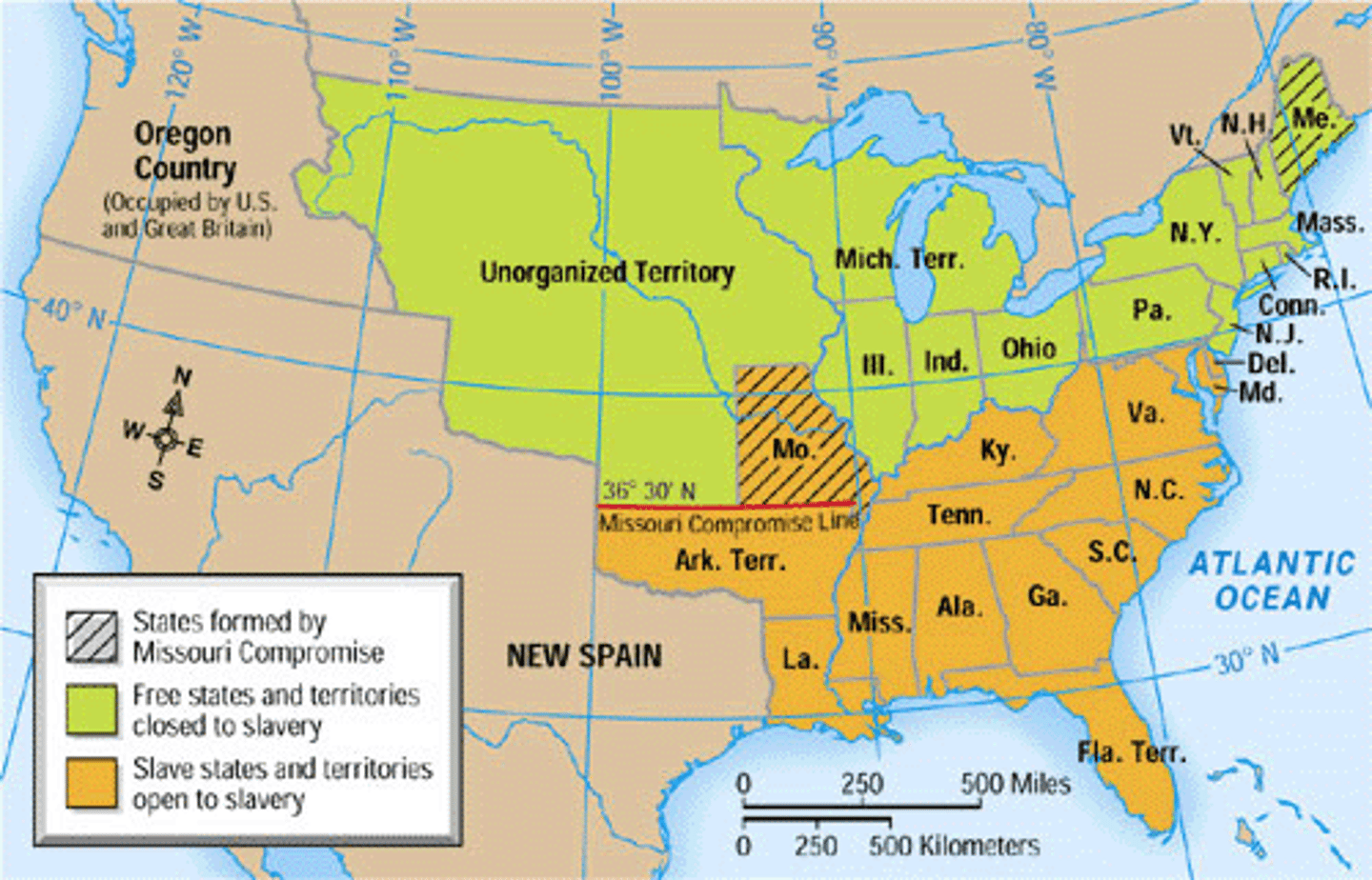
Sectionalism
The regional divide becoming apparent in American politics leading up to and even after the Civil War; the North and South were clearly divided by multiple political, economic, and cultural factors, yet each distinct region had little political variance. By 1860, the two major parties--the Republicans and the Democrats--were strongly associated with the North and the South, respectively.
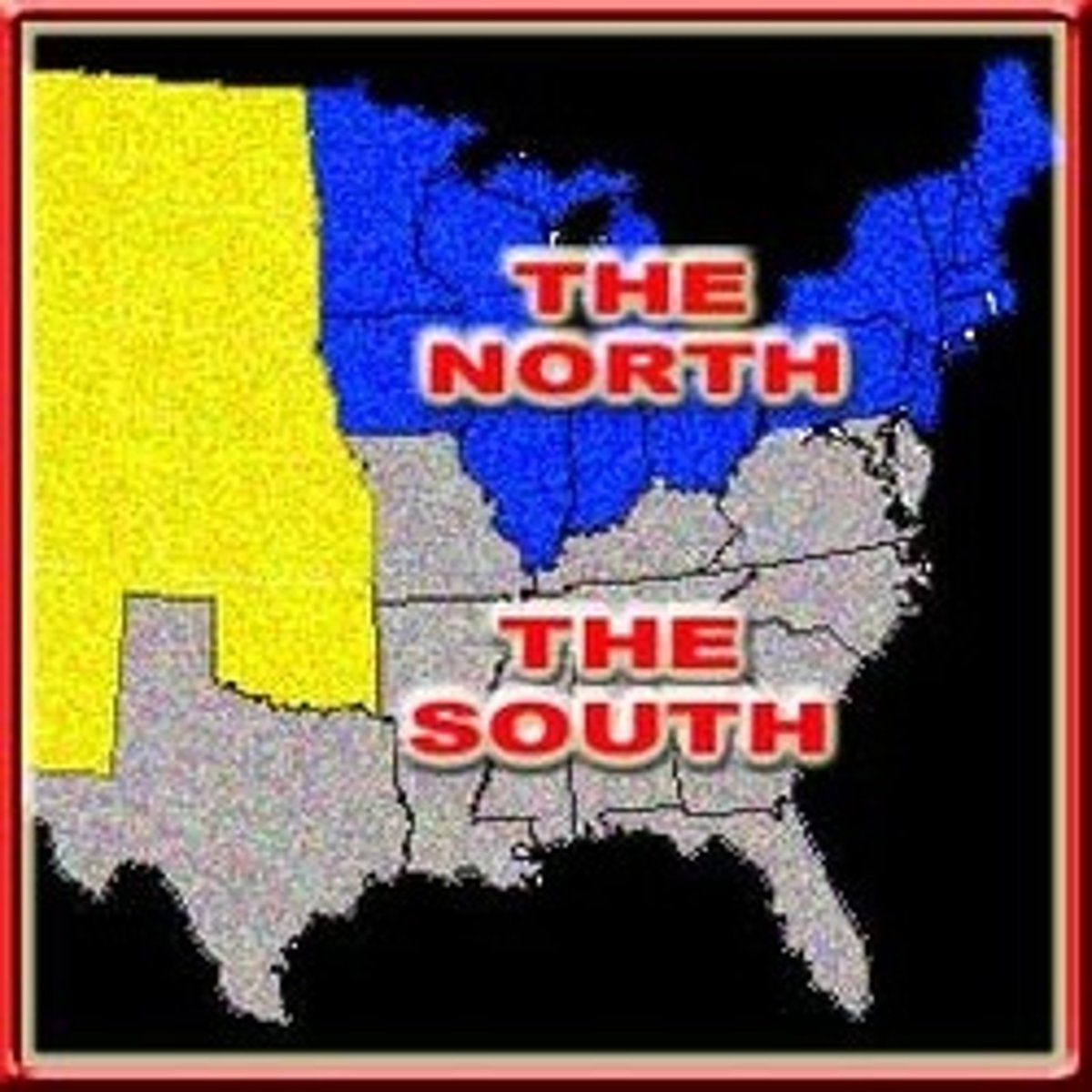
Manifest Destiny
A phrase popularizing a widely-held belief in the 1840s that the U.S. has a divinely appointed mission, so obvious as to be beyond dispute, to occupy all of North America. The belief was based on assumptions of white supremacy and the superiority of U.S. culture (mainly Protestant Christian but a liberal society), politics (the world's first Constitutional democratic republic), and economic institutions (industrializing capitalism). It was a mid-19th century version of American Exceptionalism.
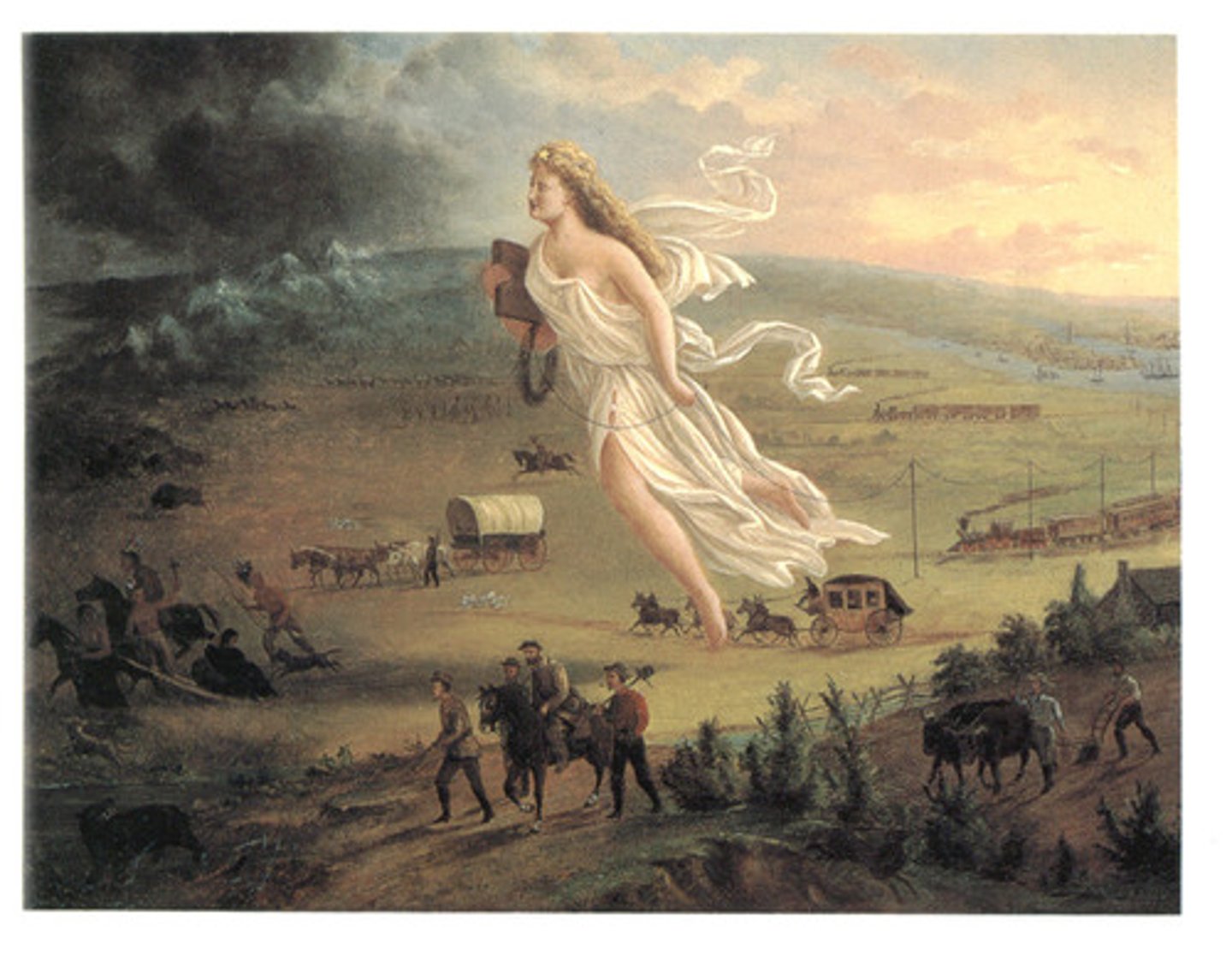
Texas Revolt (1836)
The revolt against Mexico in 1836, which resulted in Texas independence, led by Americans legally settled in Texas (a Mexican territory) after Mexico abolished slavery, began limiting the number of Americans who could enter Texas and annulled the land contracts of the Americans. The war included the infamous battle of "The Alamo" (187 killed)/ "Remember the Alamo!" Texas immediately sought annexation to the U.S., but this prospect inflamed sectionalism as many Northerners opposed Texas annexation as it would add more slave states to the union. As a result, Texas was not annexed until 1845. Today, Texas is called "The Lone Star State" because of the nine years of its independence from both Mexico and the U.S.
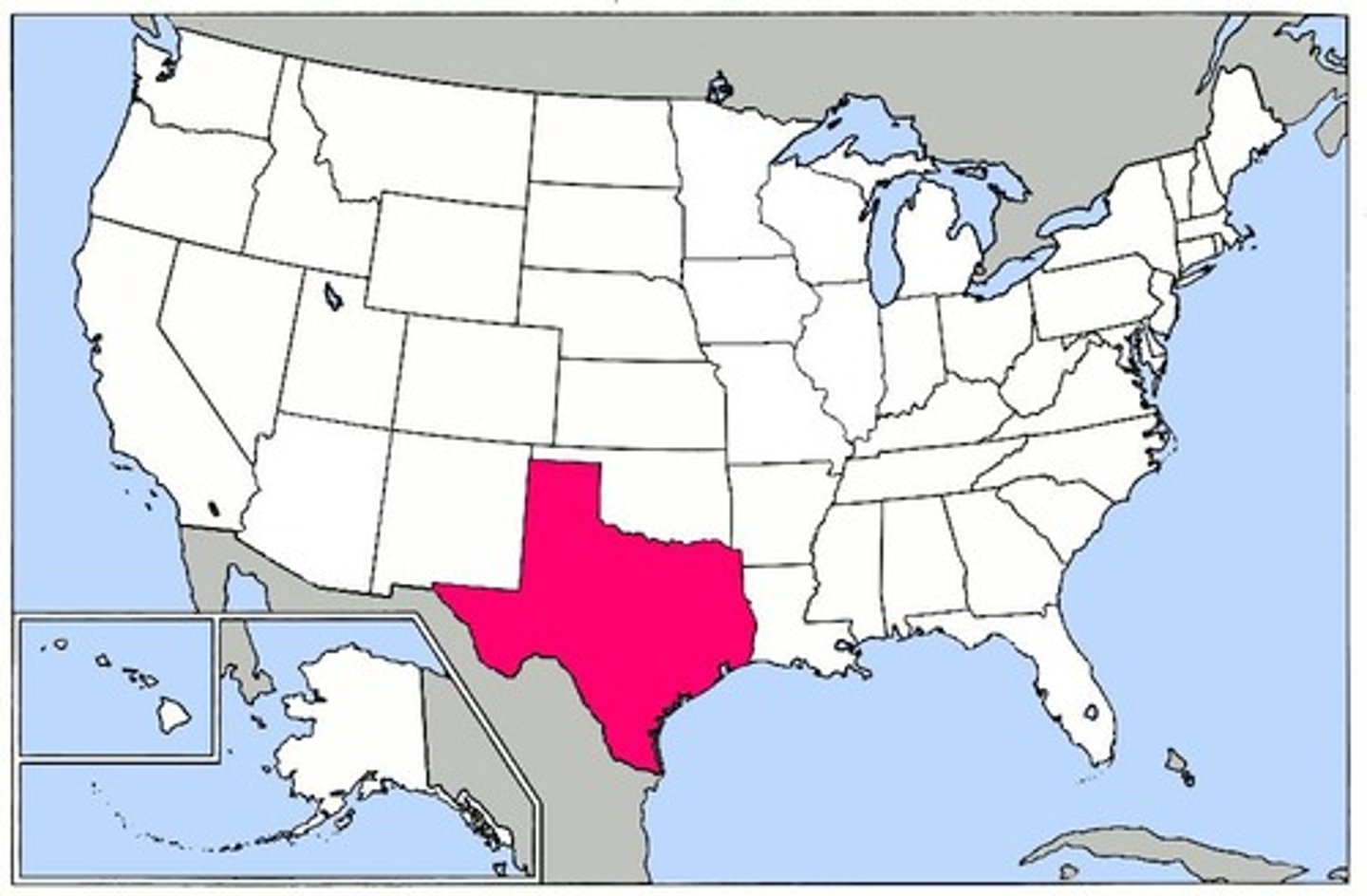
Juan Seguin
A Tejano (a Mexican living in Texas) who played an active role in the Texas Revolt against Mexico, then served as Mayor of San Antonio, but was later driven out by vigilantes and lamented that he had become "a foreigner in my native land." His experience reflects the process by which white settlers in Texas expelled many people they deemed "Mexican" including many Tejanos who had supported Texas' independence from Mexico.
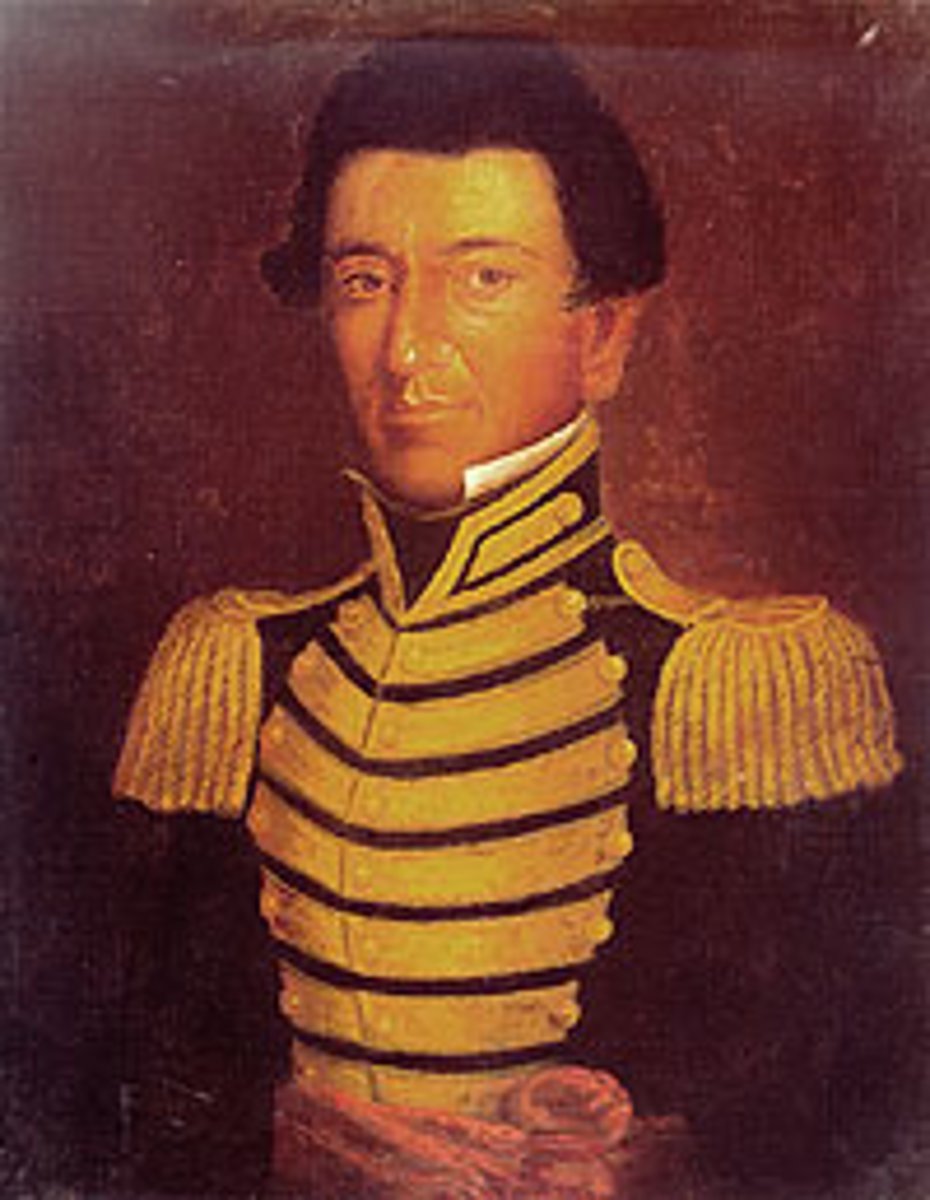
Annexation of Texas
After gaining its independence from Mexico in 1836, this state asked to be annexed to the U.S. But it was too controversial because Northerners feared the addition of a slave state would increase the power of slavery and the South. Nine years later, after James Polk's election in 1844, Congress finally declared it a part of the U.S. in 1845; Confirmed by the Treaty of Guadalupe-Hidalgo.
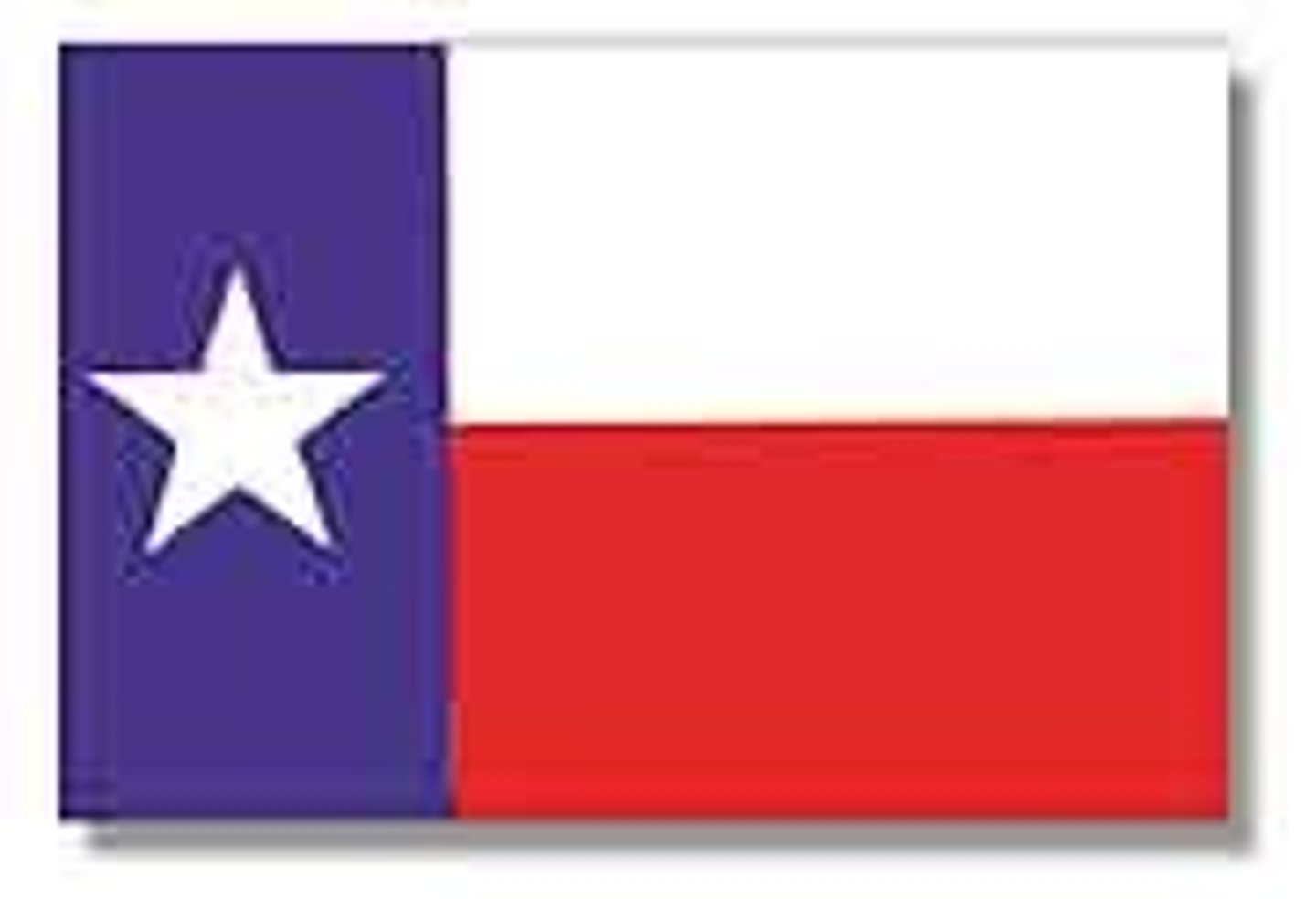
James Polk and expansion
Democratic President of the U.S. who is most associated with western expansion. He was the "Manifest Destiny Election of 1844" and assumed the presidency in 1845 with a clearly defined set of goals: to reduce the tariff, reestablish the independent Treasury system, settle the dispute over ownership of Oregon, and bring California into the Union. During his Presidency, he accomplished all of them. He oversaw the annexation of Texas, Oregon, and the entire Mexican cession during his presidency; these new western lands placed the debate over slavery's expansion into the West at the center of American political debate for a generation.
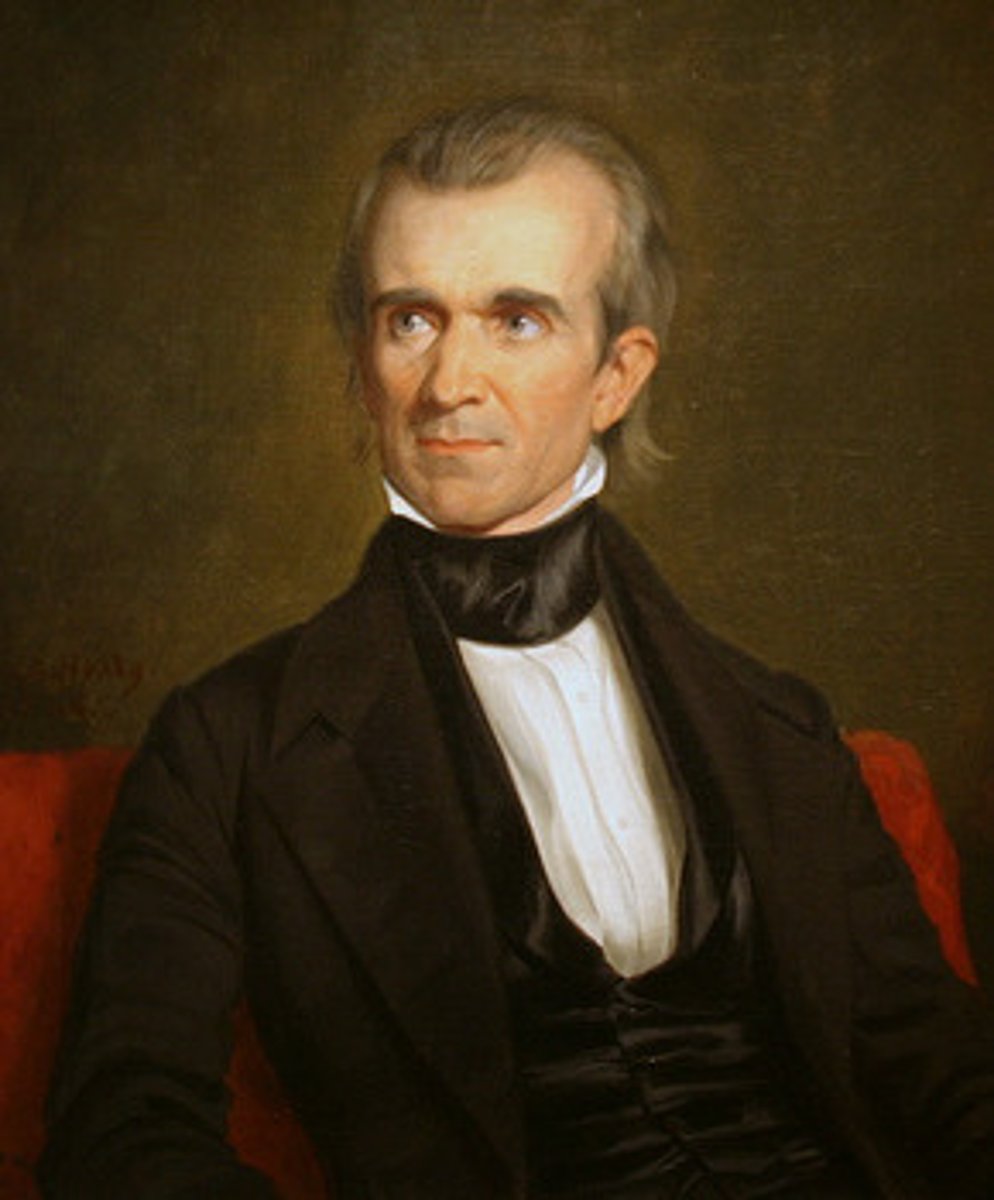
Mexican American War, 1846-48
Controversial war (in part because Polk deliberately provoked it) with Mexico for control of California and New Mexico, 1846-1848. The first American War to be fought primarily on foreign soil and the first in which American troops occupied a foreign capital.
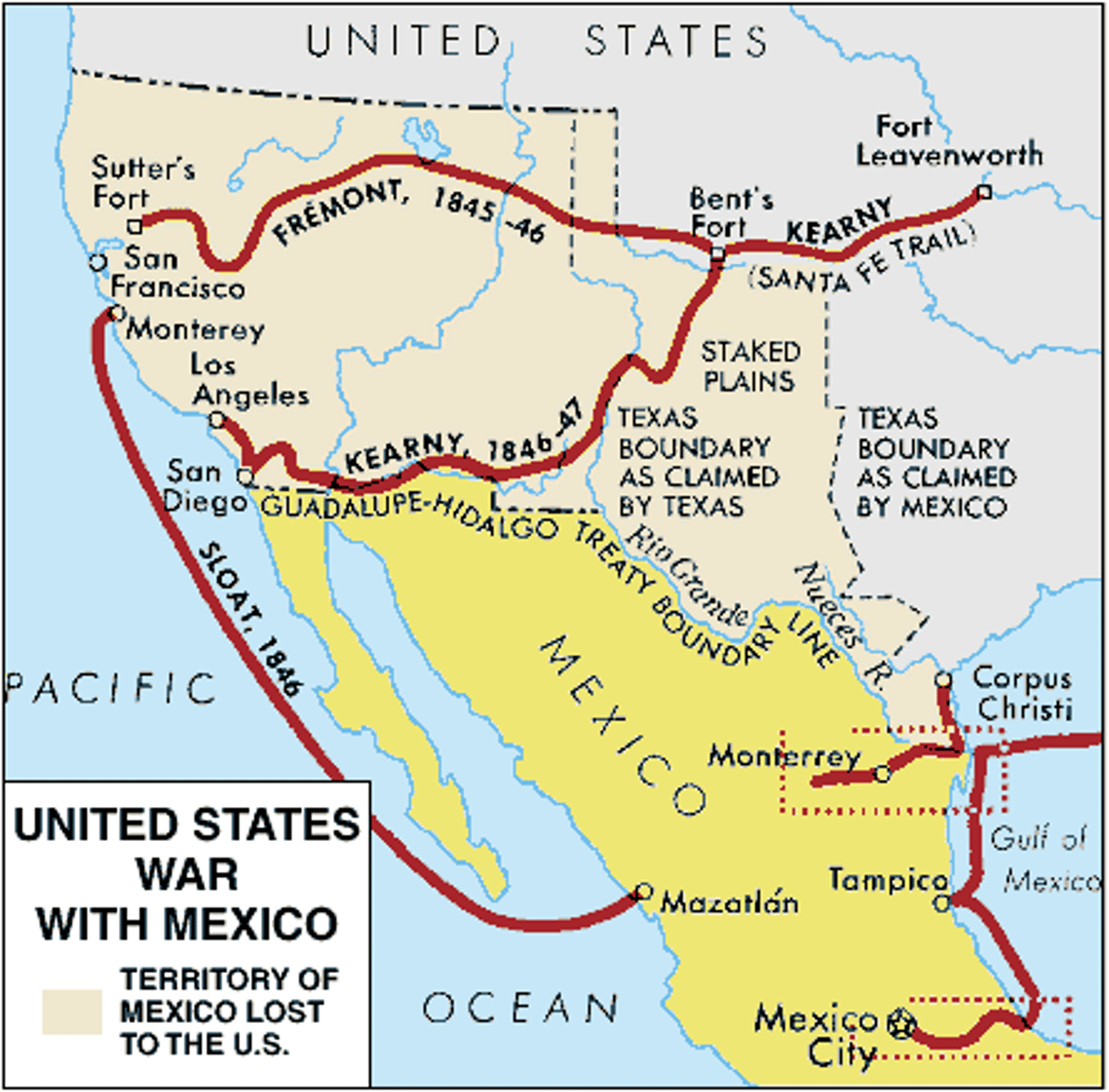
Henry David Thoreau's "Essay on Civil Disobedience"
Following the United States declaration of war on Mexico in May, 1846, this transcendentalist writer refused to pay taxes on grounds that the Mexican-American War was an unjustified war to extend slavery. From that premise, Thoreau articulated the ideas in his "Essay on Civil Disobedience," which argued that citizens had a moral obligation to disobey unjust laws. An uncompromising abolitionist and a Transcendentalist who emphasized the importance of individual conscience, his ideas had a profound impact, not just on his contemporaries, but also on Mahatma Gandhi and Martin Luther King a century later.
Treaty of Guadalupe-Hidalgo, 1848
A treaty signed between Mexico and the U.S. in 1848 that ended the Mexican-American war, confirmed the annexation of Texas, and ceded California, present-day New Mexico, Arizona, Nevada, and Utah to the U.S. in exchange for $15 million. Its also promised (and ultimately failed) to protect the rights of the newly made Americans of Mexican ancestry.
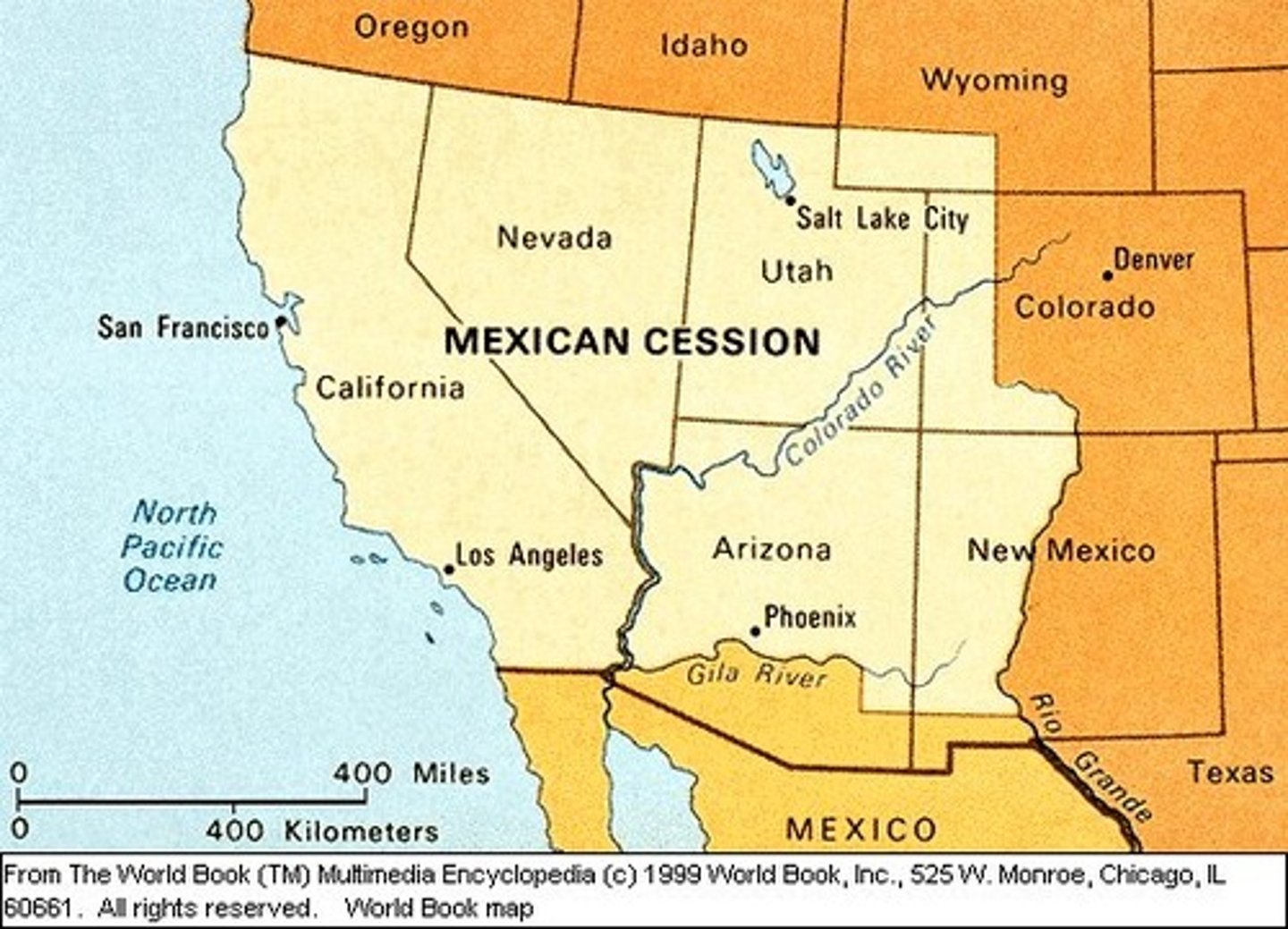
Popular sovereignty
The name given to the position in the slavery debate that argued settlers in western territories should have the right to decide the slavery issue for themselves (rather than having Congress decide it for them); This position was most closely associated with Senator Stephen A. Douglas of Illinois and his Kansas-Nebraska Act. (Note: In the history of liberalism, this term also carries the broader meaning that governments must reflect the consent of the people.)
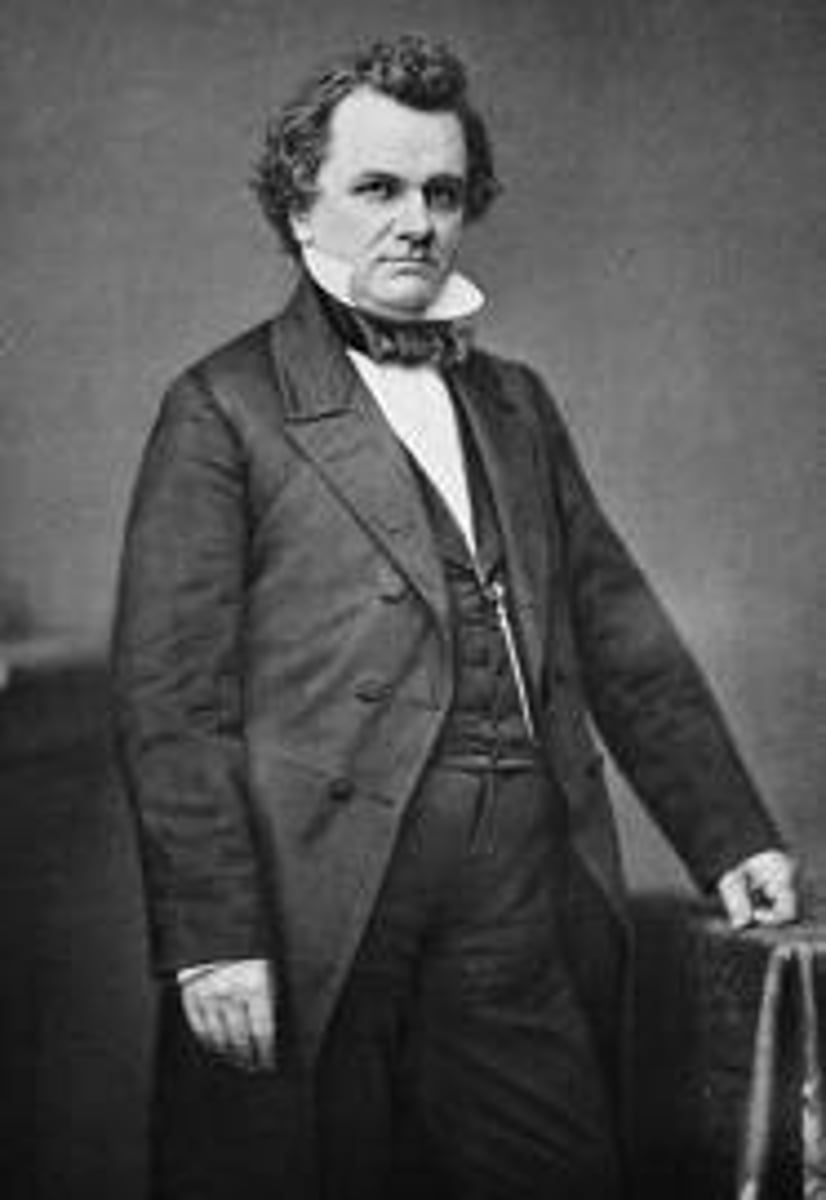
Gold Rush
The mania for gold incited by its discovery in California in 1848; drastically increased the number of settlers who migrated from all over the world to California.
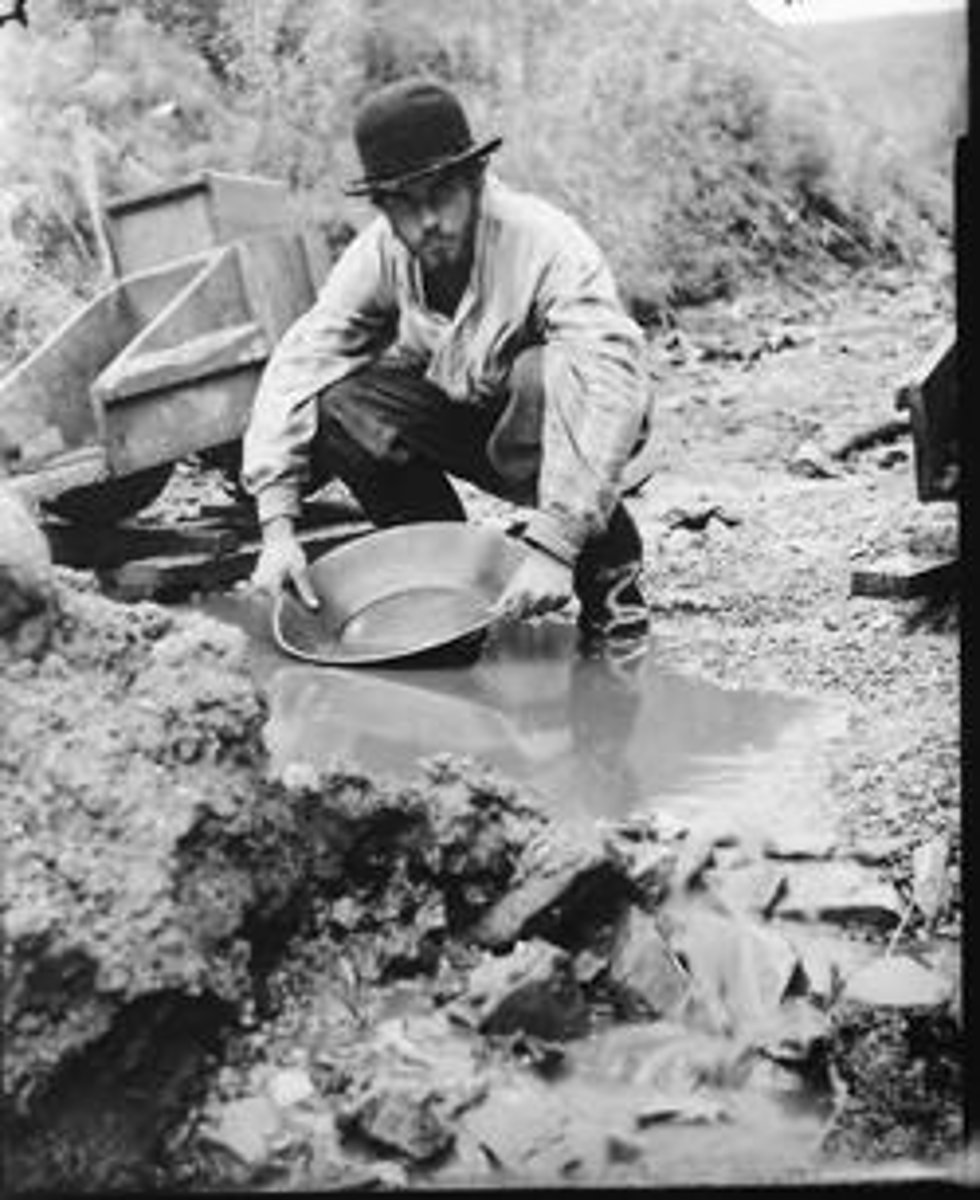
Compromise of 1850
Complex compromise over how to deal with he territory acquired from Mexico, and devised by Senator Henry Clay, that:
1) Admitted California as a free state (pleasing free soilers)
2) Included a stronger fugitive slave law (Please pro-slavery southerners)
3) Applied popular sovereignty in the new territories of New Mexico and Utah (pleasing states right proponents)
4) Abolished the slave trade (not slavery) in D.C (pleasing abolitionists)
John C. Calhoun
The most important, and representative, politician from the South between 1815 and 1850, his career represents the movement in the nation from nationalism to sectionalism between 1815 and 1850. In 1828 in response to the tariff of 1828, "The Tariff of Abominations," he proposed that states could nullify federal legislation. He also became one of the chief proponents of slavery, not as a necessary evil, but rather as a positive good. By 1850 he believed that the South's only hope of survival as a plantation-based slave civilization was to expand to new territory. Because the Compromise of 1850 proposed admitting California as a free state, he led an unsuccessful effort to block that compromise. He died in April 1850, before Congress ratified the Compromise of 1850 in September.
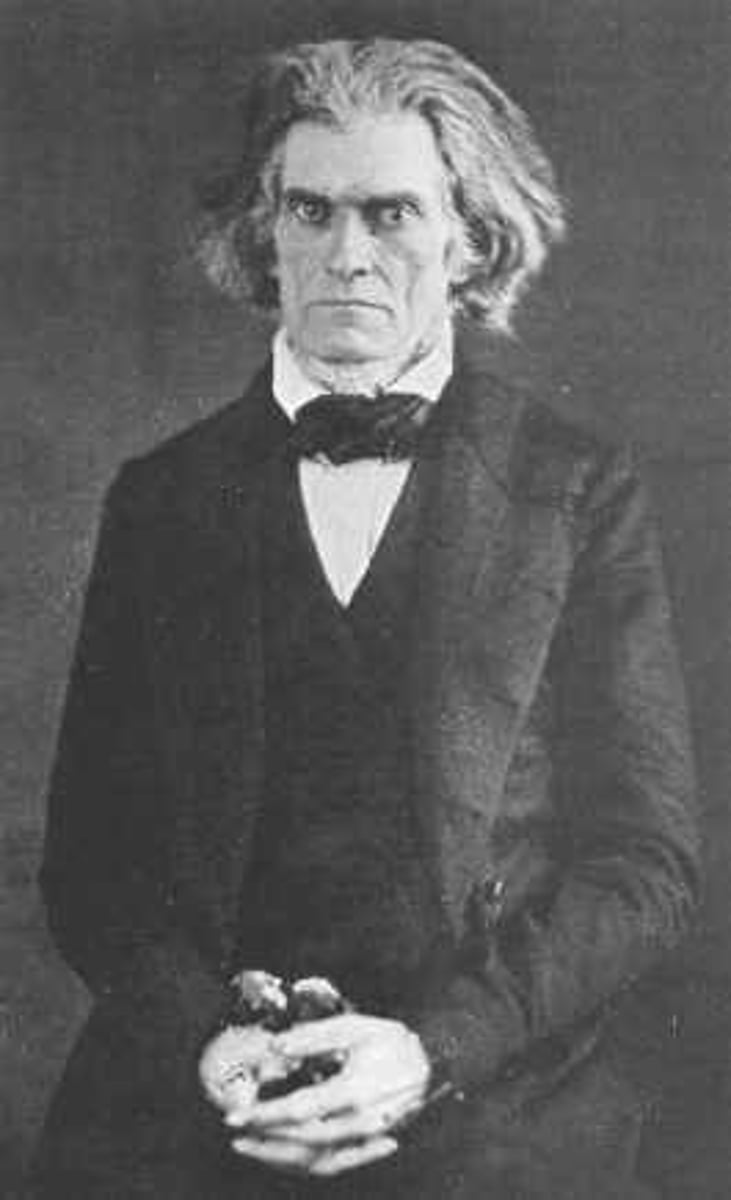
Fugitive Slave Act of 1850
Part of the Compromise of 1850, the Fugitive Slave Act aroused strong opposition in the North because it allowed special federal commissioners to determine the fate of alleged fugitives without benefit of a jury trial or even testimony by the accused individual. It prohibited local authorities from interfering with the capture of fugitives and required individual citizens to assist in the capture when called upon by federal authorities. It also revealed that the South was willing to accept the expansion of federal authority over states rights as long as it strengthened the institution of slavery.
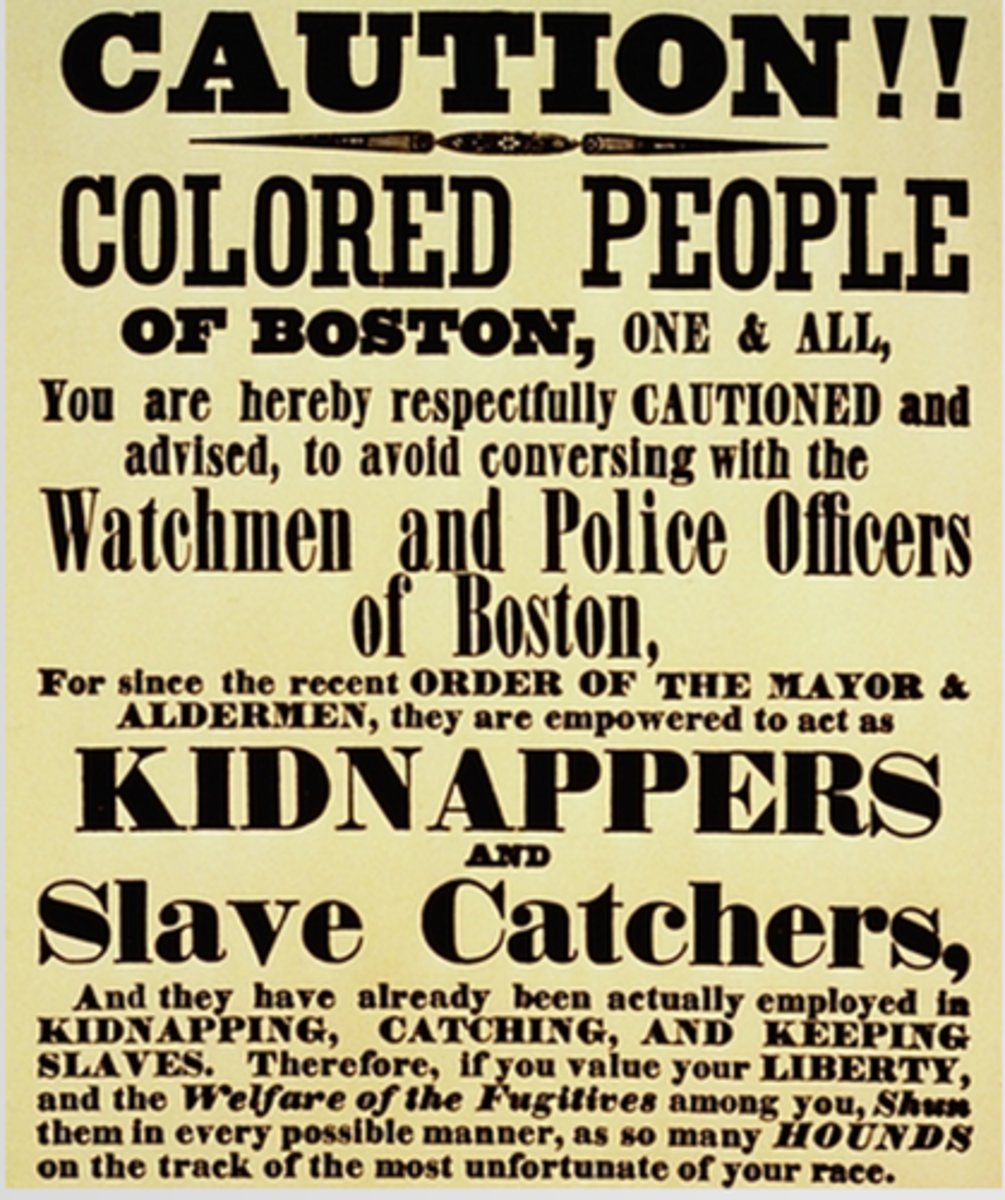
Abolitionism
Social movement of the pre-Civil War era (predominantly in the North) that advocated the immediate emancipation of the slaves and their incorporation into American society as equal citizens.
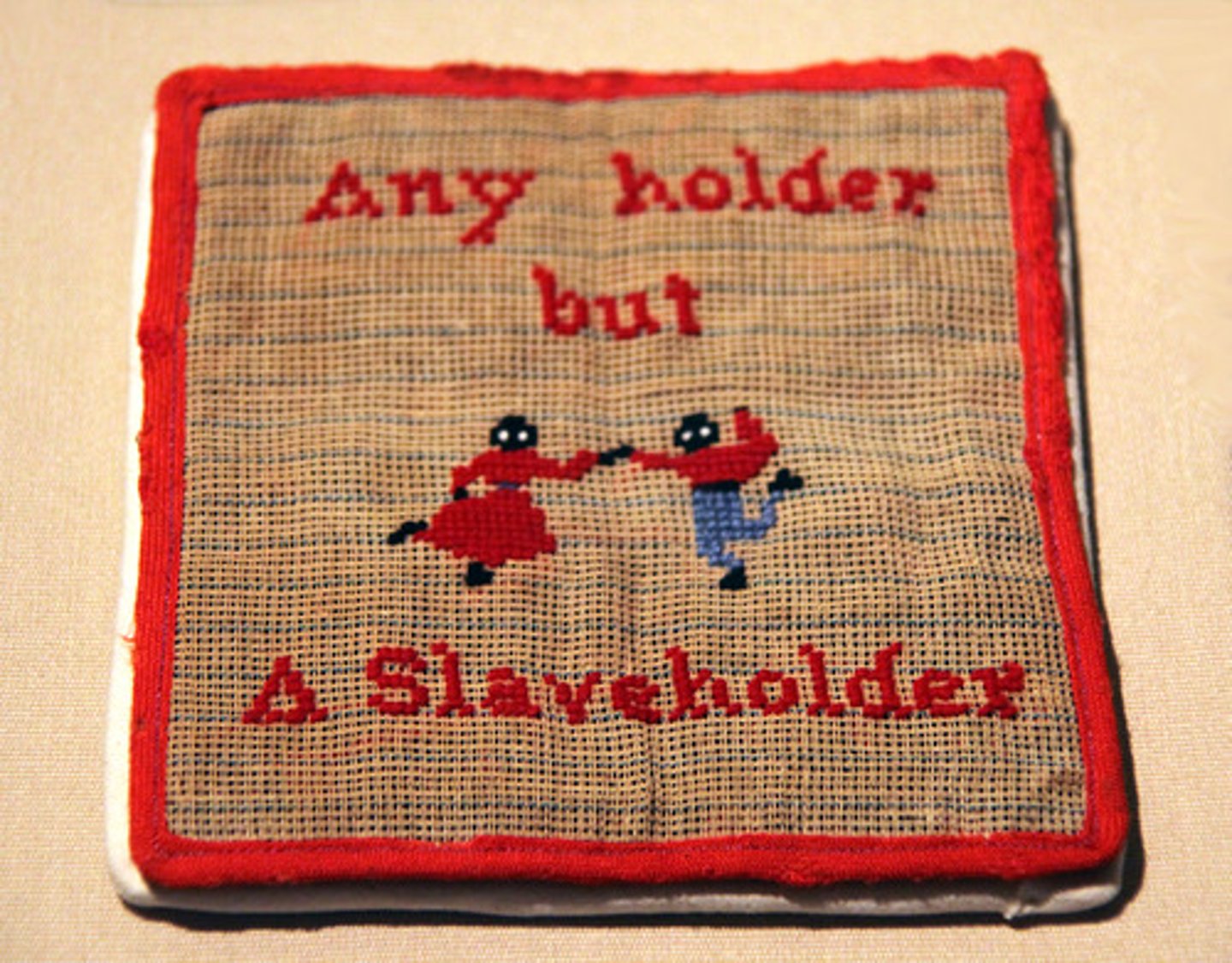
Harriet Beecher Stowe’s Uncle Tom’s Cabin (1852)
This author's book was written as a response to the Fugitive Slave Law and with the goal of awakening the conscience of the North to the evils of slavery. It sold millions of copies and was translated into more than 20 languages. According to historian Thomas Bailey, "No other novel in American history-perhaps in all history-can be compared with it as a political force. To millions of people, it made slavery appear almost as evil as it really was."
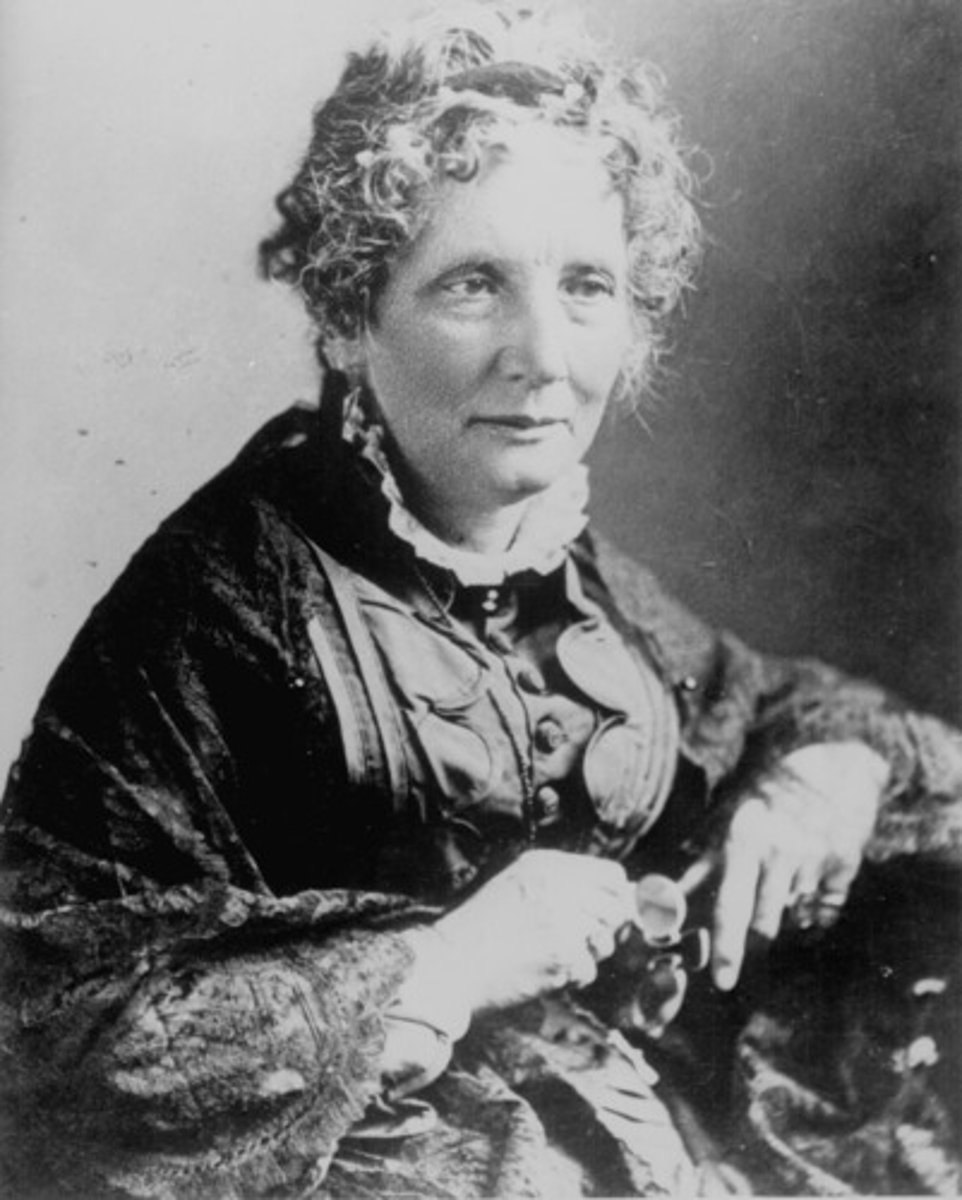
Proslavery
A belief held by Southerners that supported slavery morally, politically, socially, and economically
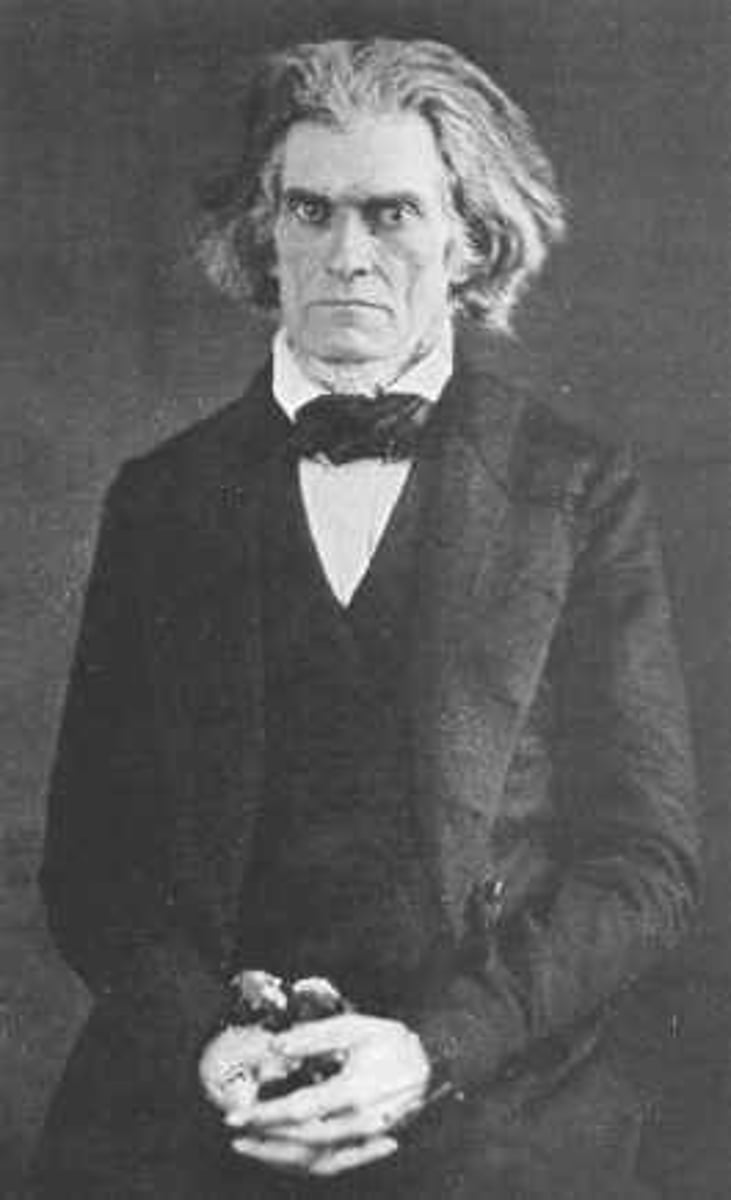
Frederick Douglass
Leading 19th-century African-American social reformer, abolitionist, orator, writer, and statesman.
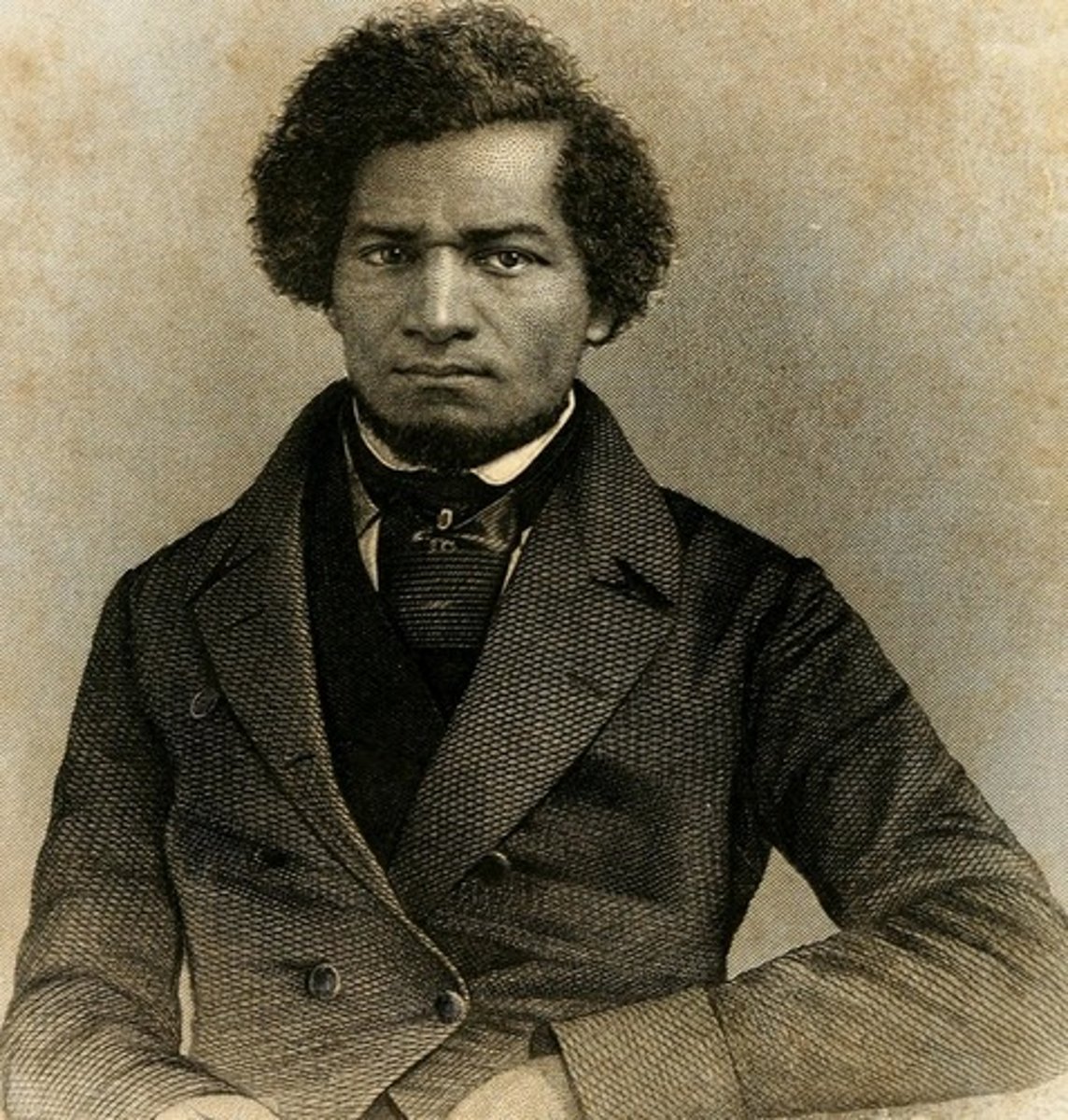
Kansas-Nebraska Act of 1854
Law sponsored by Illinois senator Stephen A. Douglas to allow settlers in newly organized territories north of the Missouri border (KA and NB Territories) to decide the slavery issue for themselves; fury over the resulting repeal of the Missouri Compromise of 1820 led to violence in Kansas and to the formation of the Republican Party.
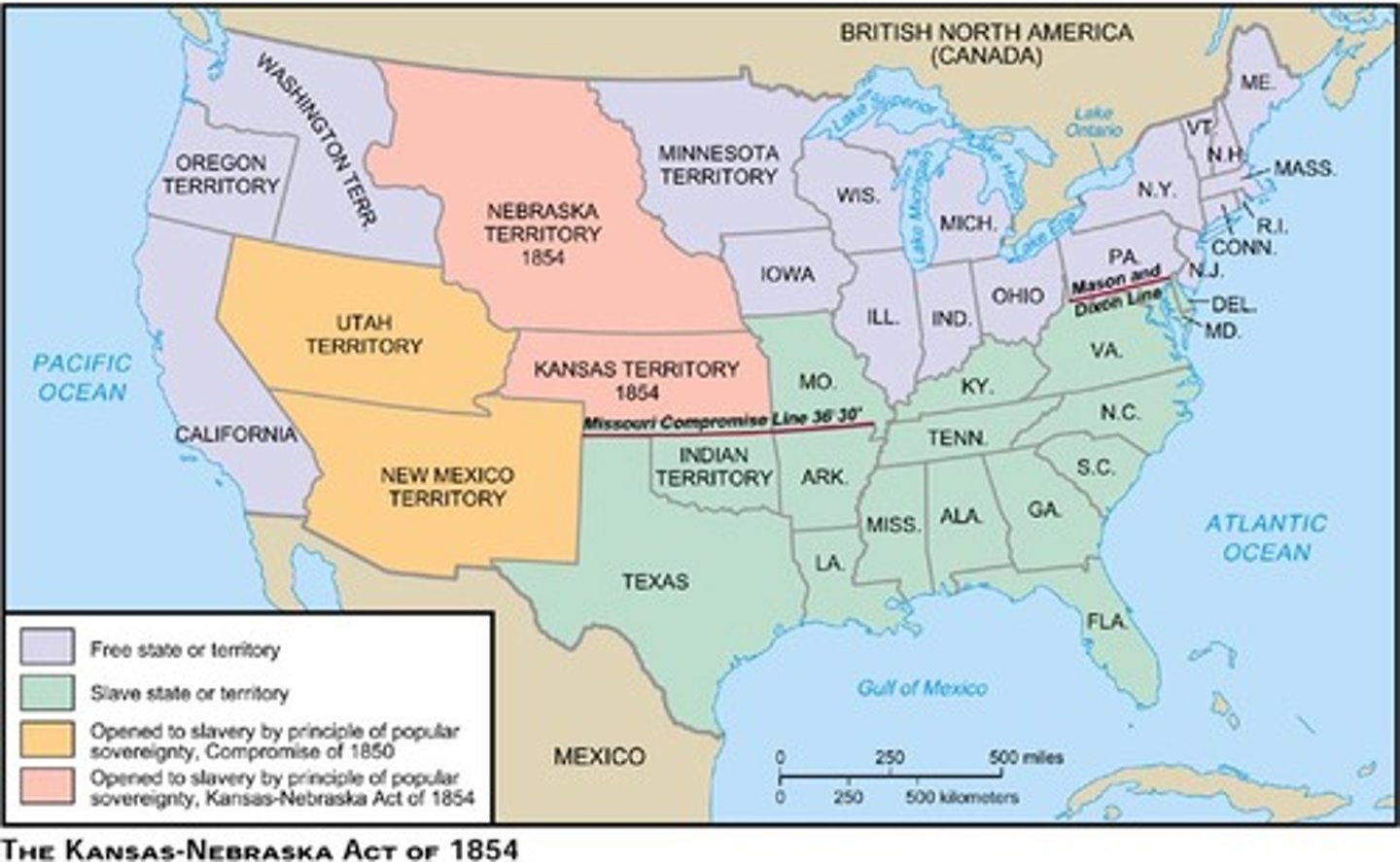
Republican Party
Organized in 1854 by the antislavery Whigs, Democrats, and Free Soilers in response to the passage of the Kansas-Nebraska Act; nominated John C. Frémont for president in 1856 and Abraham Lincoln in 1860; also the name of the party formed by Thomas Jefferson and James Madison in the 1790s.
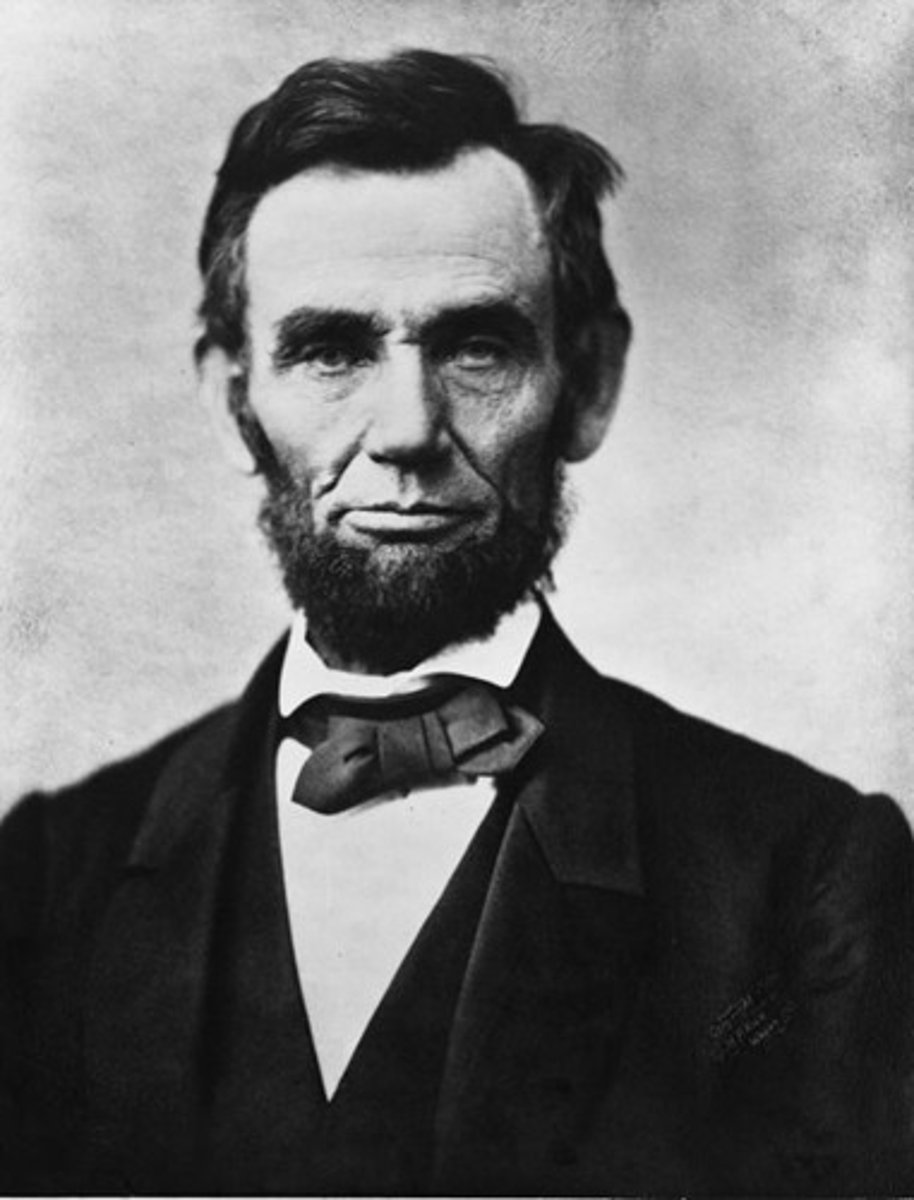
Free Labor ideology
A comprehensive worldview that glorified the North as the home of progress and freedom; the defining quality of Northern society--as opposed to the South--was the opportunity it offered each laborer to move up to the status of landowning farmer or independent craftsman, thus achieving economic independence essential to freedom. In terms of the question of slavery in the West, the free labor position and the free soil position were synonymous: slavery can remain in the South but it should not be allowed to expand into the West. This was a position held by most northerners who feared that the expansion of slavery would block their economic opportunities in the West.
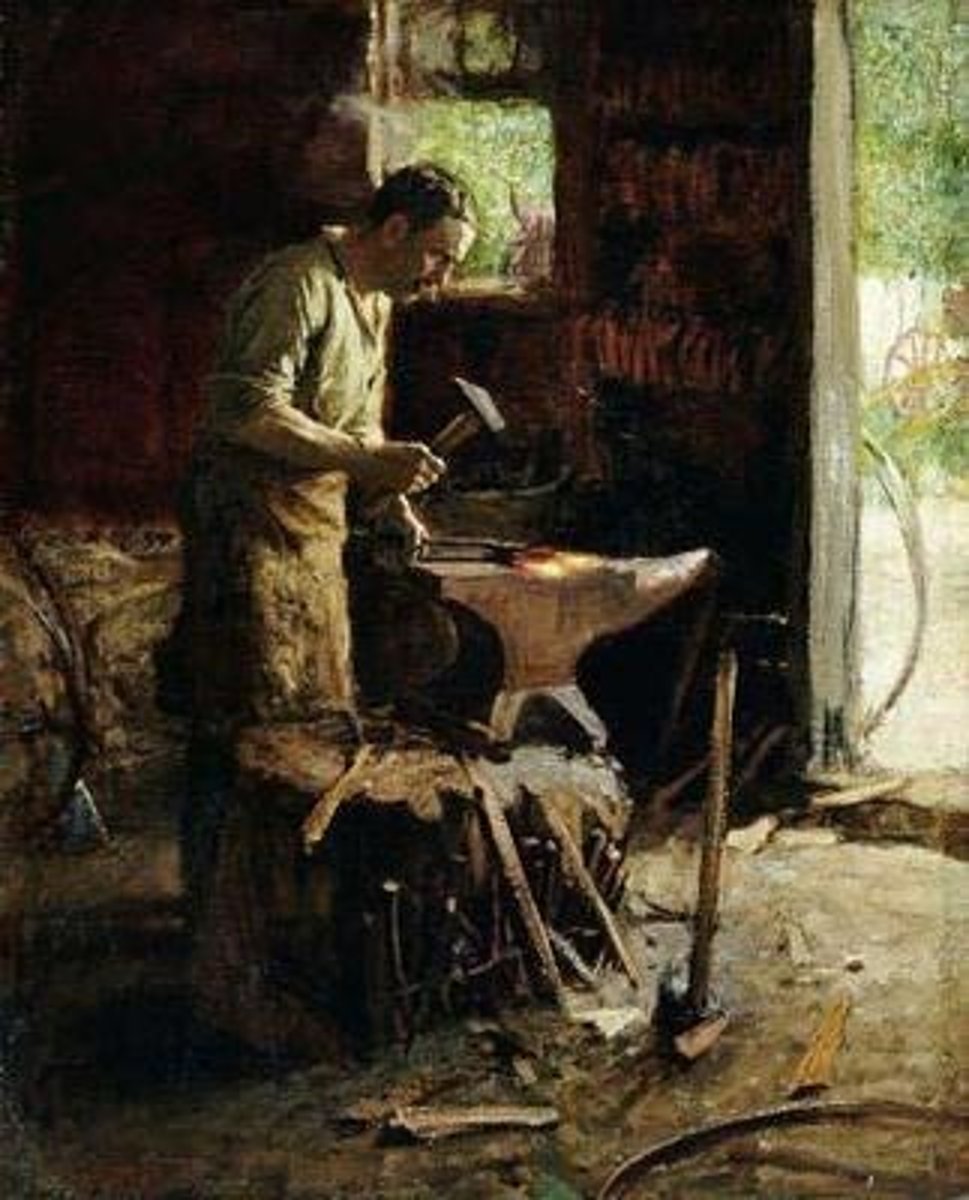
Know-Nothing Party
Nativist, anti-Catholic third party organized in 1854 in reaction to large-scale German and Irish immigration. They feared Catholics would be loyal to the Pope, rather than to the United States. Officially called "the American Party," it was secret organization, and when asked about the party by non-members, members were supposed to say, "I know nothing."
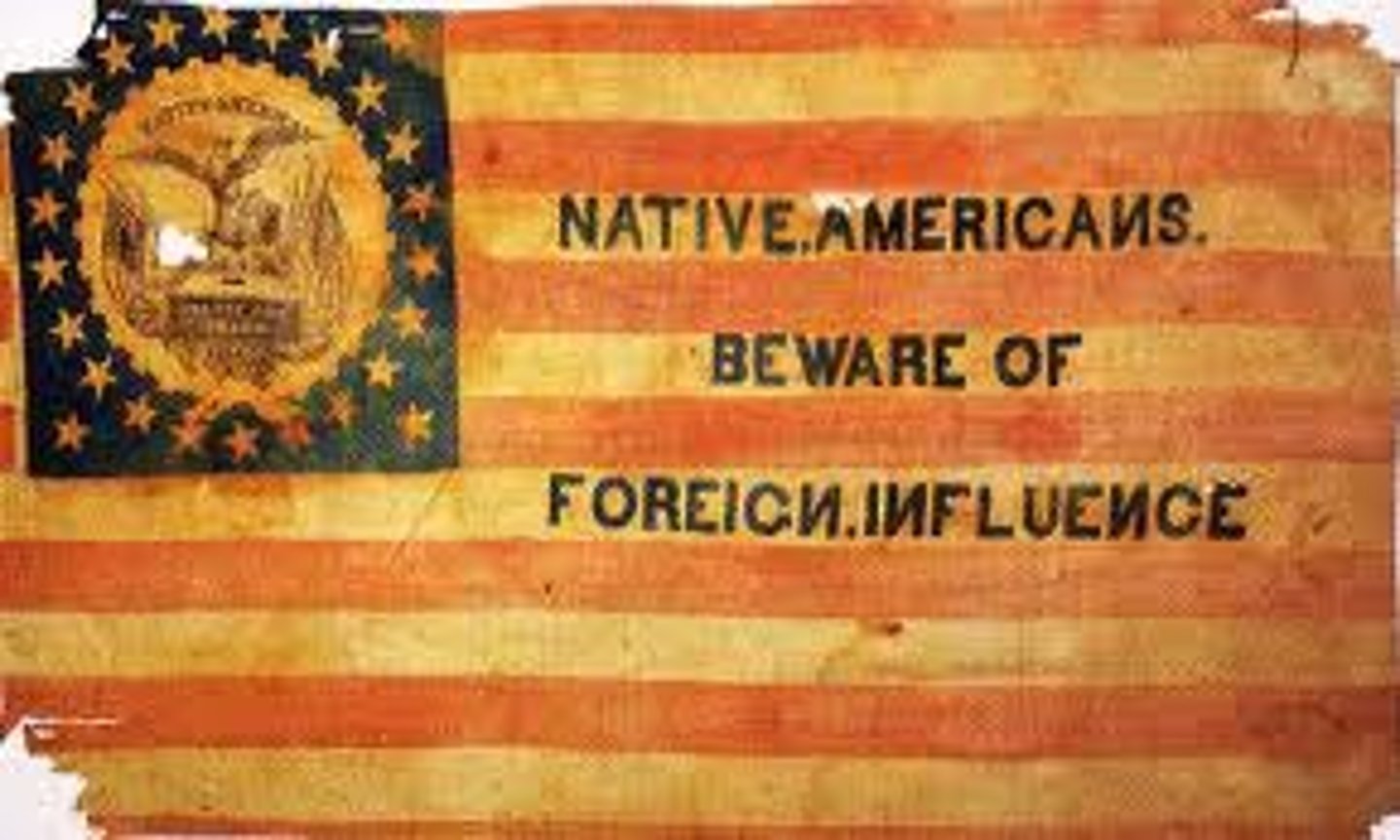
"Bleeding Kansas"
In 1856, after the Kansas-Nebraska Act had gone into effect, there was large voter fraud and the outbreak of violence between pro- and antislavery settlers in the Kansas Territory. The violence in Kansas largely discredited the idea that popular sovereignty could settle the questions over the future of slavery in the West.
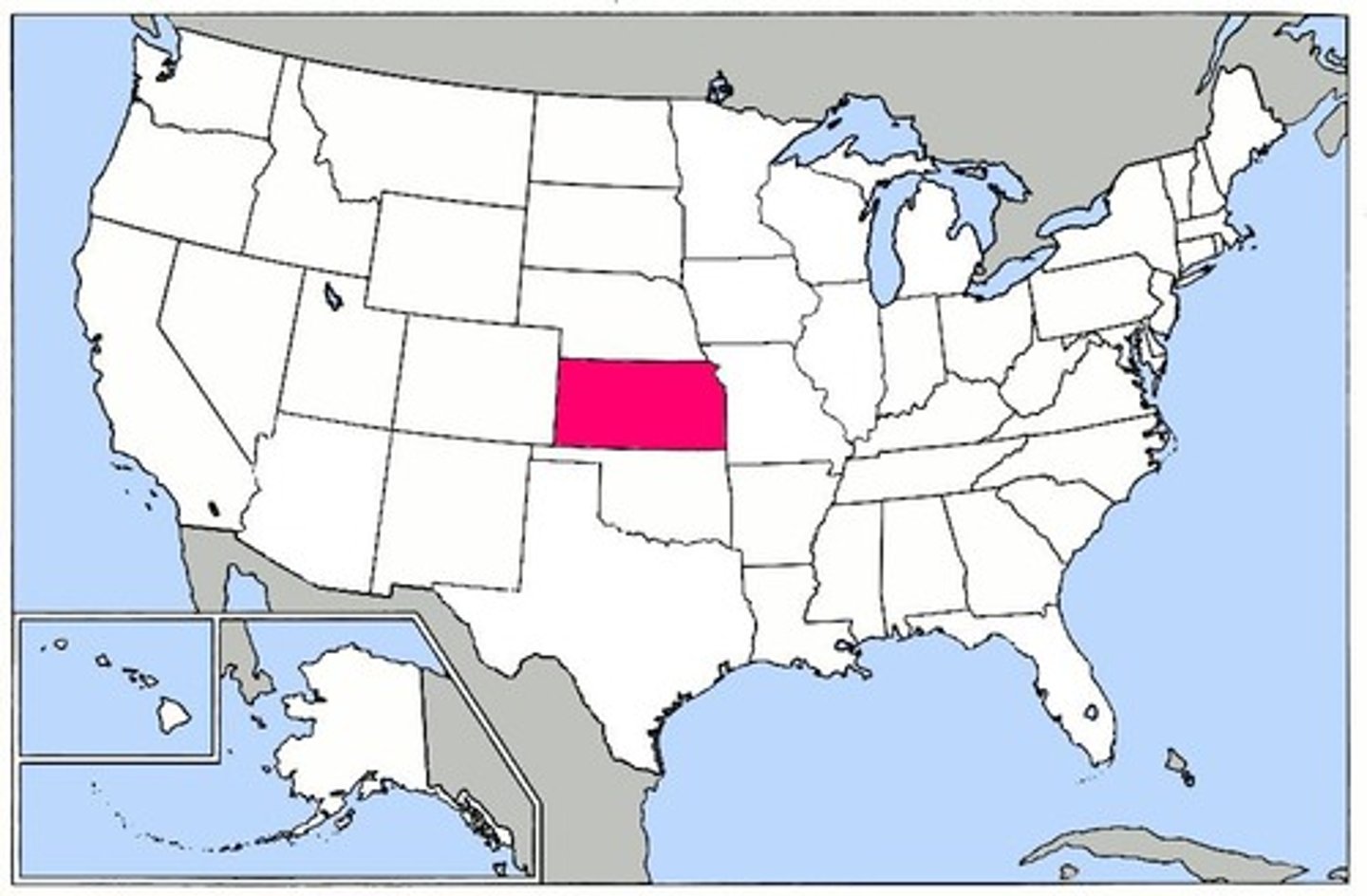
Caning of Senator Charles Sumner (1856)
After this Massachusetts Senator's passionate speech condemning the South and mocking Senator William Butler for his association with slavery and a recent speech impairment due to a stroke, Congressman Preston Brooks, Butler's cousin, brutally assaulted this Senator on the Senate floor, leaving him incapacitated for three years. Brooks faced minor assault charges, and a motion to expel him from Congress failed. He eventually resigned but was swiftly re-elected in South Carolina. This incident, along with Bleeding Kansas events, convinced many in the North that the South was barbaric. In the South, Butler was celebrated as a hero for defending the South's honor, receiving numerous canes in support of his actions.
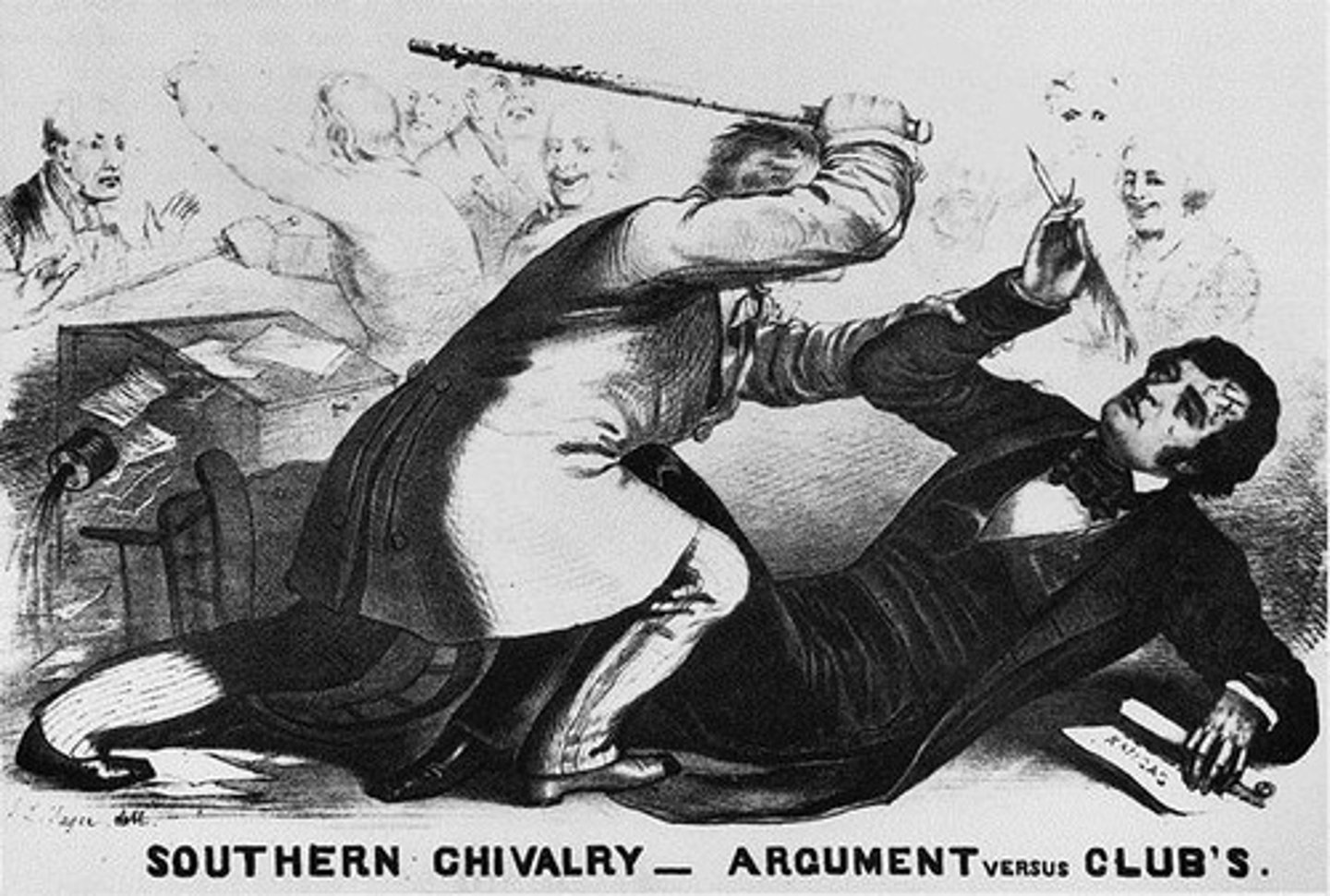
Dred Scott Decision (1857) (Dred Scott v. Sandford)
An infamous Supreme Court decision that inflamed sectional tensions in the pre-Civil War years. A slave in Missouri who, for several years, had been brought by his owner into Illinois (where slavery was illegal), sued his owner for his freedom because he thought residence in a free state (Illinois) should have made him free. In the infamous decision, Chief Justice Roger B. Taney ruled that 1) no black people could be citizens of the U.S., 2) the enslaved man's residence in Illinois had not made him free, and 3) perhaps most shockingly, Congress could not prohibit slavery in the territories. This third part seemed to imply that the Missouri Compromise Line had been unconstitutional and that the Republican Party's free-labor ideology would be obsolete.
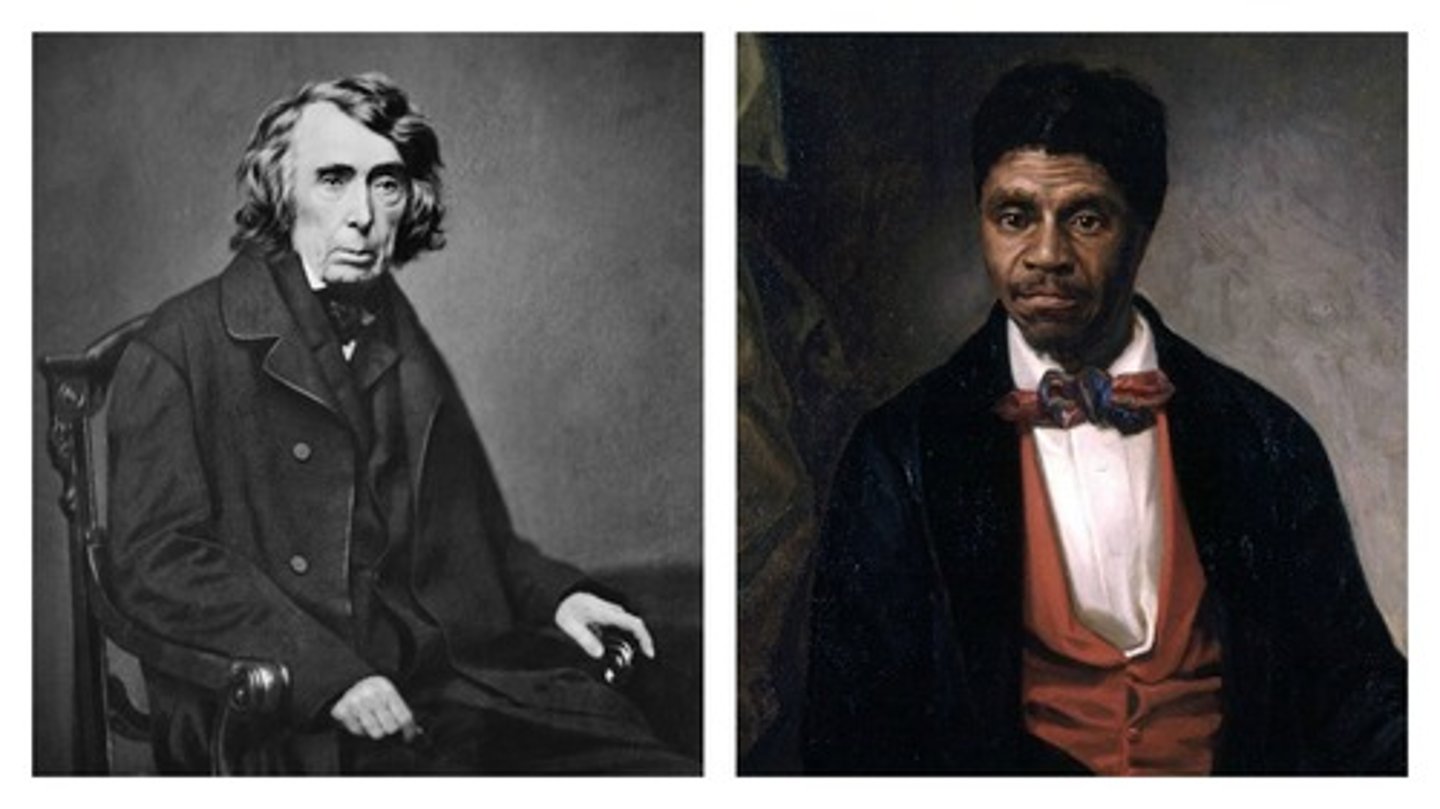
Abraham Lincoln
Born in Kentucky, served as a Whig in the Illinois state legislature and later in Congress (1847-49); this politician re-entered politics after the Kansas-Nebraska Act; Despite later being known as the Great Emancipator, he held the Free Labor/Soil ideology and became a Republican; in 1858, he accepted his party's Illinois Senate nomination and carved a name for himself as he battled against Stephen Douglas, ultimately losing in '58; in 1860, he went on to win both the electoral and the popular vote to become the 14th U.S. president; he dedicated his presidency to keeping the Union intact and eventually winning the Civil War and abolishing slavery
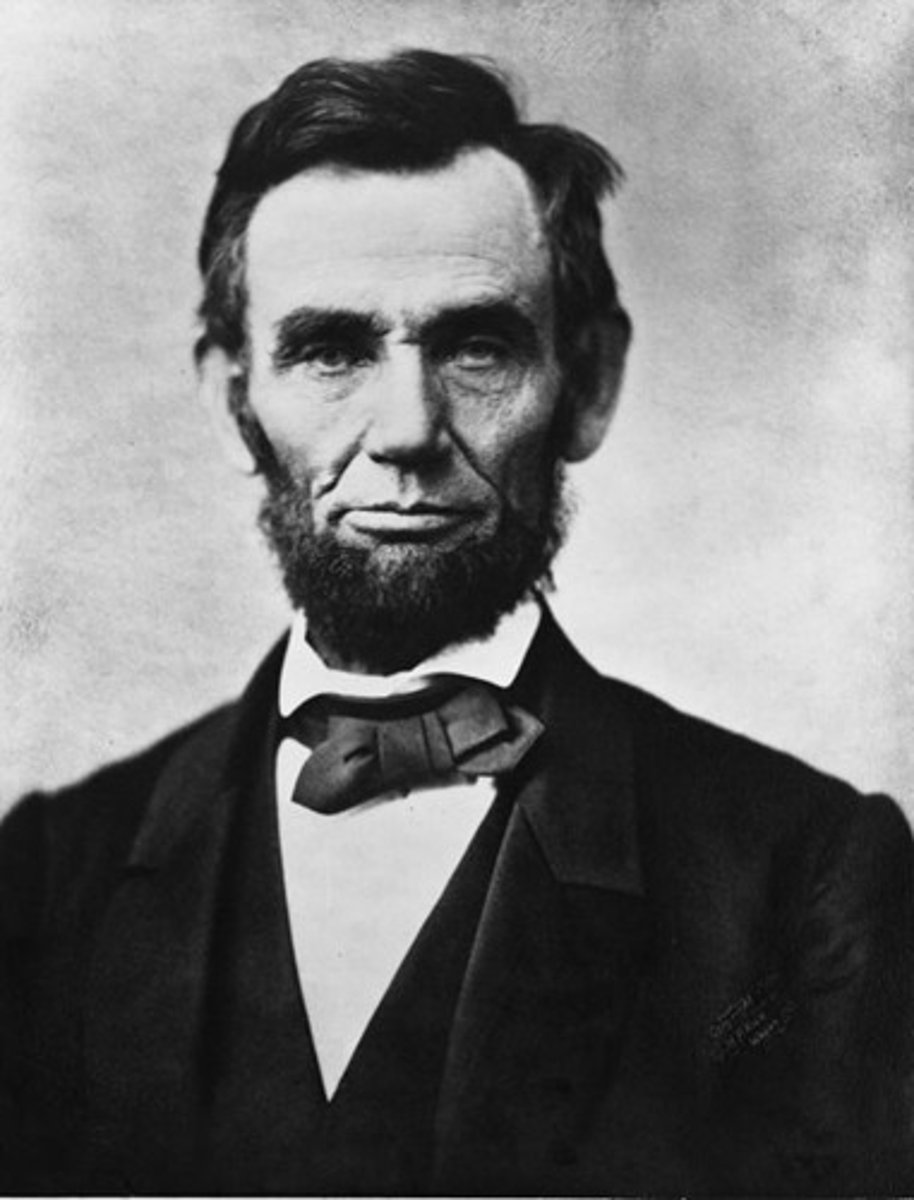
Lincoln-Douglas debates
Series of senatorial campaign debates in 1858 focusing on the issue of slavery in the territories; held in Illinois between Republican Abraham Lincoln, who made a national reputation for himself, and incumbent Democratic senator Stephen A. Douglas, who managed to hold onto his seat.
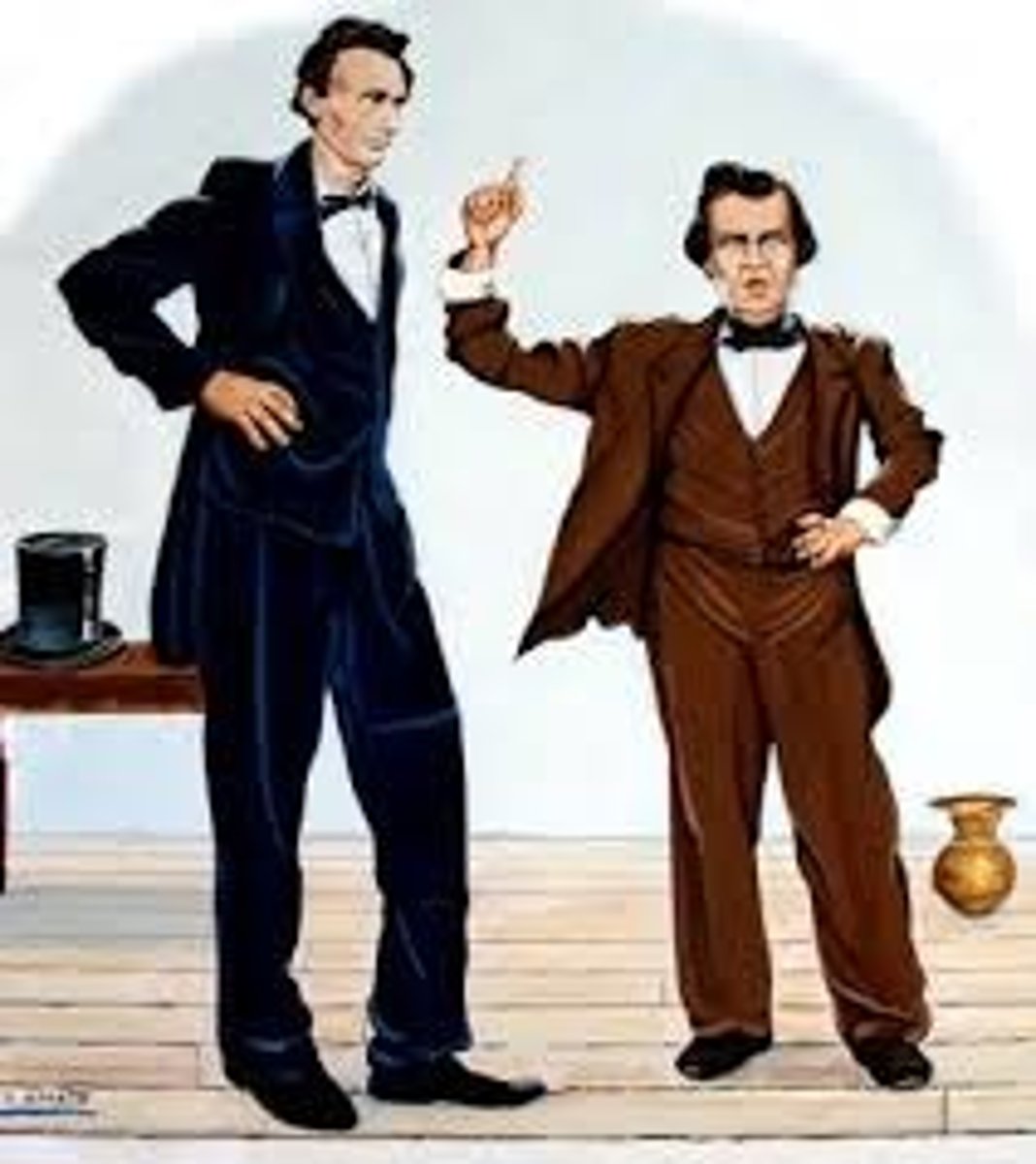
John Brown's raid on Harper's Ferry, Virginia
This abolitionist launched a raid on a federal arsenal in 1859 in an attempt to spark a slave uprising. He intended to liberate and arm the slaves in the area with weapons from the arsenal and then start a liberation movement that he hoped would sweep south throughout the region. The plan failed. Its leader was captured, hung, and yet celebrated as a martyr by many Northerners. This event exacerbated sectionalism by convincing many Southerners of the North's hostility to slavery.
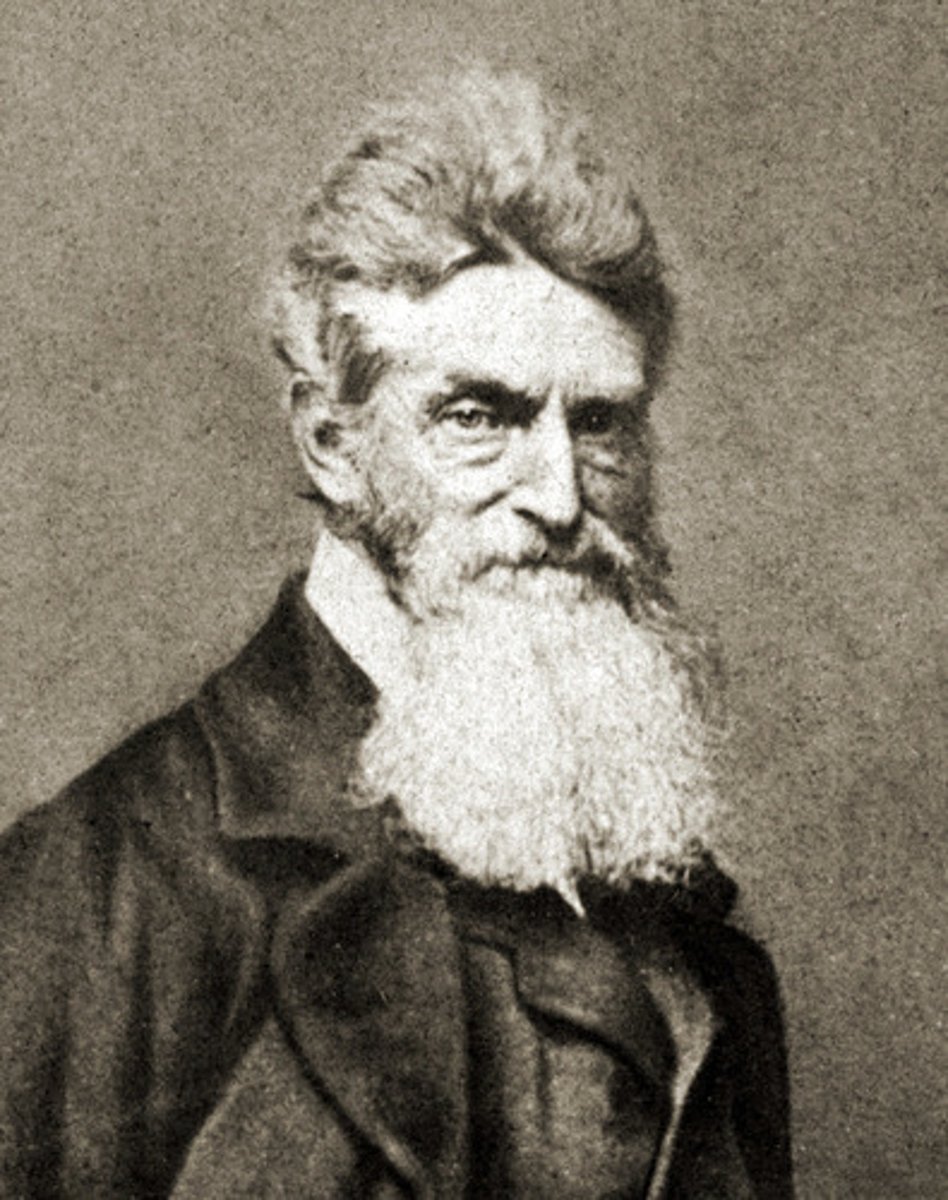
Election of 1860
The candidates were Lincoln (Republican), Breckinridge (Southern Democrat), Bell (Constitutional Union [wanted to preserve the Constitution as it was, with slavery]), Douglas (Northern Democrat). Despite not even appearing on the ballot in most southern states, Lincoln won both the electoral and the popular vote; a clear example of the sweeping sectionalism dividing the nation. Breckinridge carried most of the slave states and Lincoln took the large majority of the North; Douglas was the only candidate to have significant support across the nation. Lincoln's victory triggered the secessionist movement.
![<p>The candidates were Lincoln (Republican), Breckinridge (Southern Democrat), Bell (Constitutional Union [wanted to preserve the Constitution as it was, with slavery]), Douglas (Northern Democrat). Despite not even appearing on the ballot in most southern states, Lincoln won both the electoral and the popular vote; a clear example of the sweeping sectionalism dividing the nation. Breckinridge carried most of the slave states and Lincoln took the large majority of the North; Douglas was the only candidate to have significant support across the nation. Lincoln's victory triggered the secessionist movement.</p>](https://knowt-user-attachments.s3.amazonaws.com/c3b60e36-e743-4f6e-aa80-b85e3a6b3e8b.jpg)
The First Modern War
The American Civil War; the first time armies confronted each other with weapons created by the industrial revolution. In a modern, industrial, war like the Civil War, the effectiveness of political leadership, the ability to mobilize economic resources, and a society's willingness to keep up the fight despite setbacks are as crucial to the outcome as success or failure on individual battlefields. The casualties dwarfed anything in the American experience
War was transformed from army vs. army to society vs. society. The first time that the railroad transported troops and supplies and the first to see railroad junctions become major military objectives. First demonstration of the superiority of ironclad ships, revolutionizing naval warfare. Telegraph was used for military communication and the introduction of observation balloons to view enemy lines. The musket was replaced with a more accurate rifle, which changed the nature of combat. Propaganda was used to motivate both sides of the war.
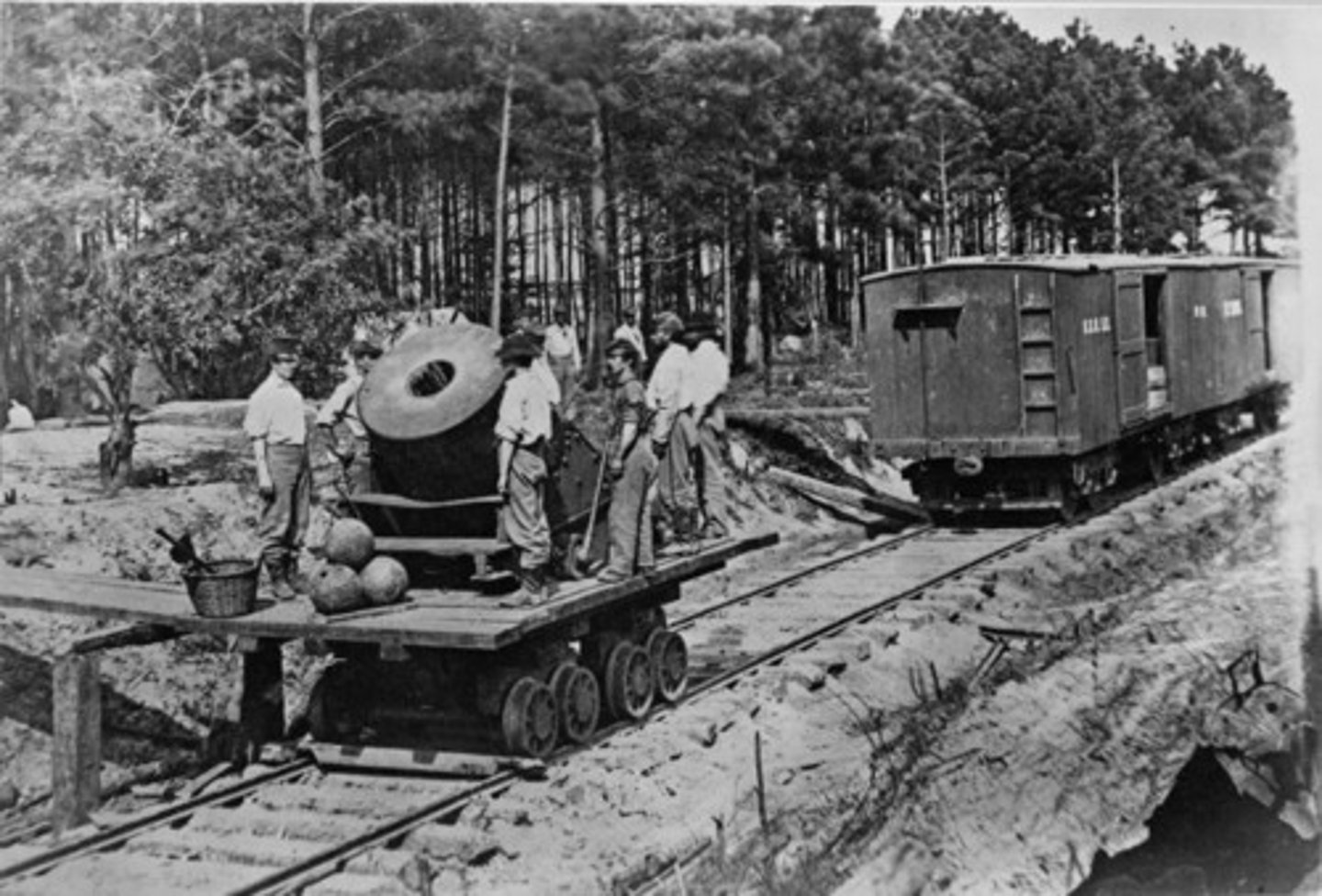
The Confederate States of America (CSA)
A self-proclaimed nation from 1861-1865 of eleven slave-holding and seceding states (Texas, Louisiana, Arkansas, Tennessee, Mississippi, Alabama, Georgia, Florida, South Carolina, North Carolina, Virginia).
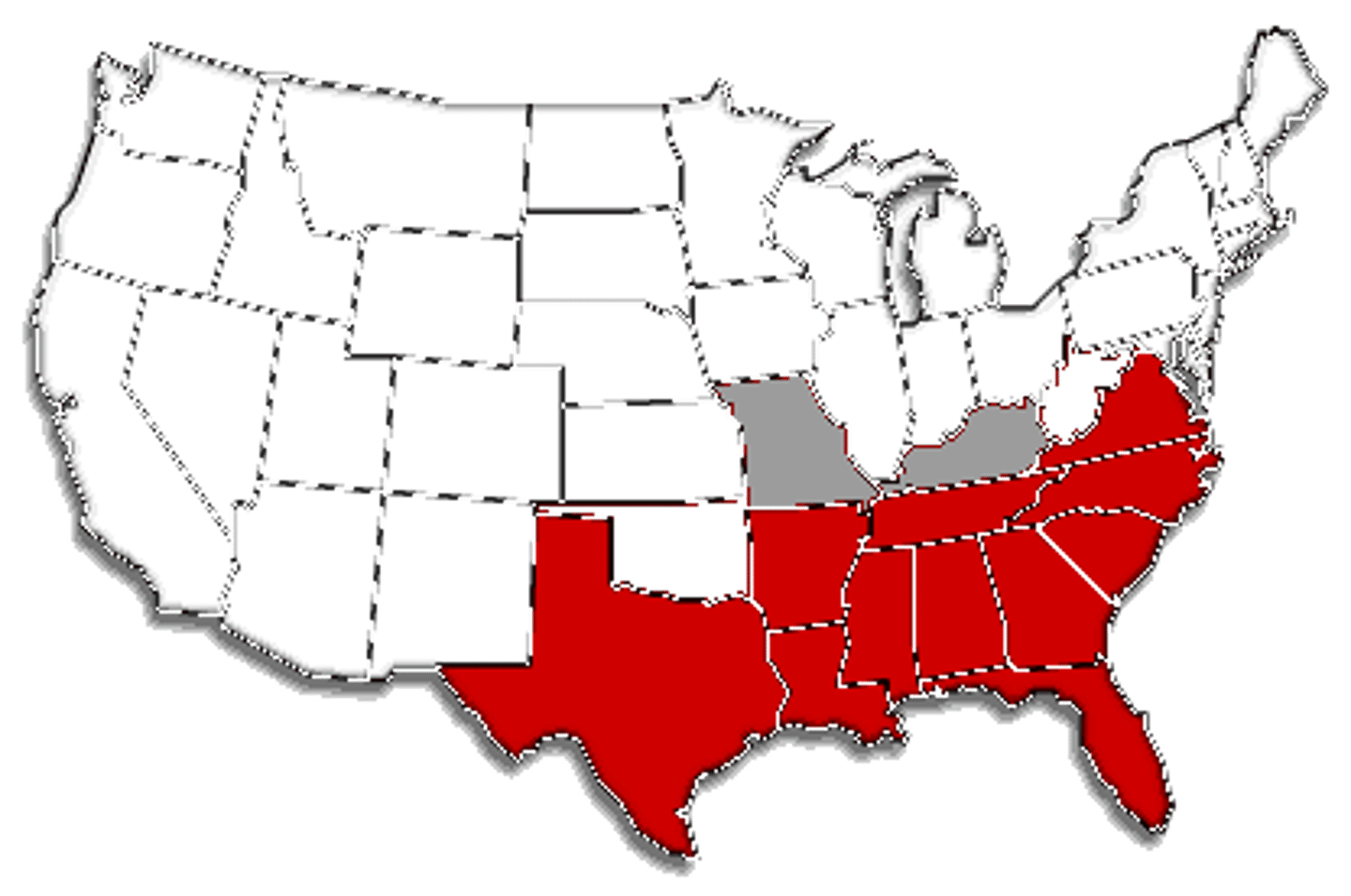
Southern vs. Northern War Aims
Northern:
Restore the shattered Union, which meant it had to invade and conquer an area larger than Western Europe. Union soldiers had to be motivated to fight, and possibly die, to defend relatively abstract concepts like union and freedom.
Southern:
Win independence, which meant it had to not surrender to the Northern Army. Confederate soldiers were motivated to defend their own families, homes, and property, in addition to more abstract concepts like liberty.
Southern and Northern resource advantages/disadvantages
The North:
Population= 22 million in 1860
In manufacturing, railroad mileage and financial resources outstripped the South
Mostly had farm boys, shopkeepers, artisans and urban workers
South:
Population: 9 million w/ 3.5 million slaves
Less manufacturing than the North
However, southern armies could lose most of the battles and still win the war if their opponent tired of the struggle
Non-slaveholding small farmers with slave-owners dominating the officer corps
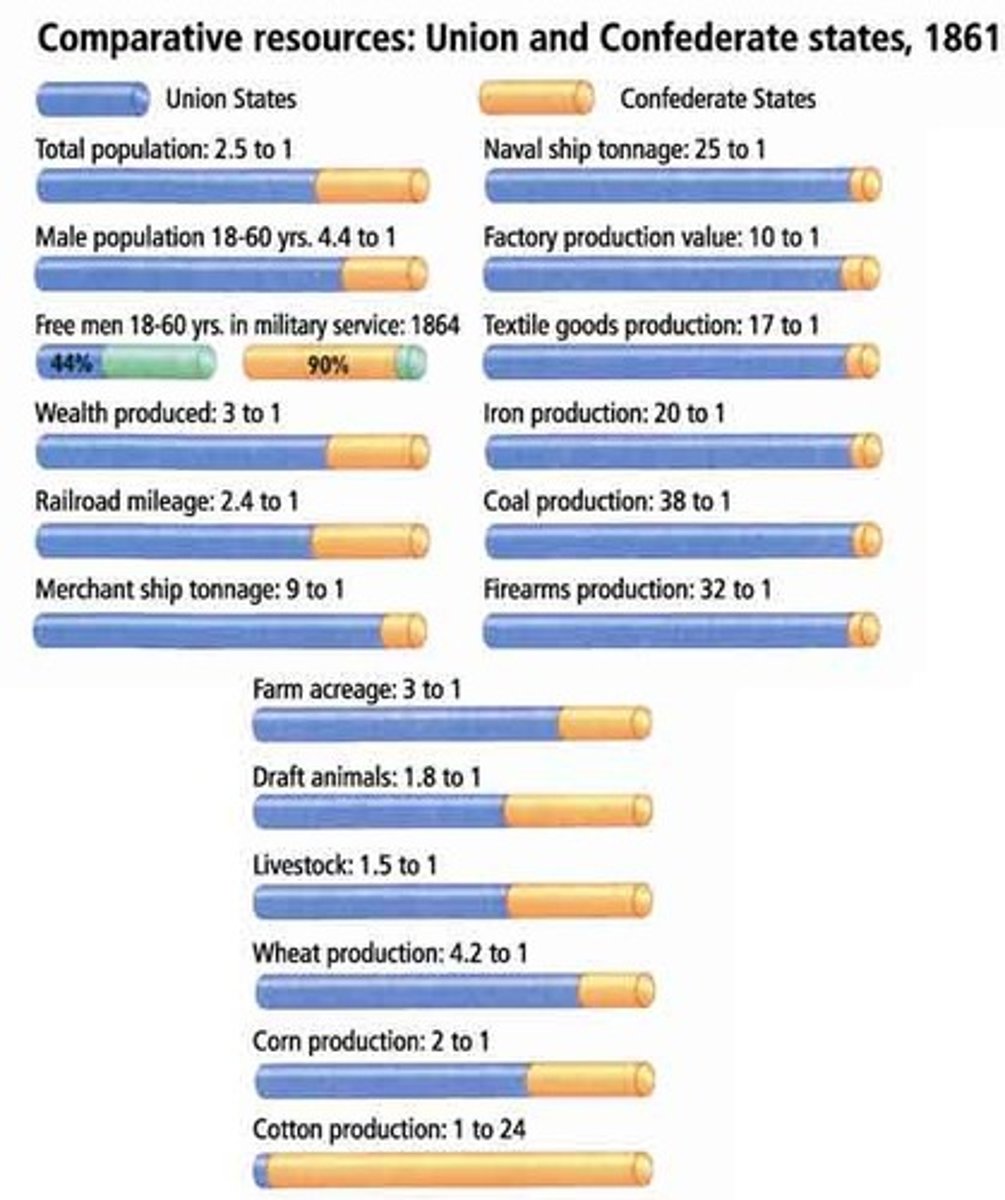
The Draft
Mandatory military service for all men of a certain age. During the Civil War, both the Union and the Confederacy allowed men who were drafted to hire substitutes; this lead to class resentments and charges of a "rich man's war and a poor man's fight."
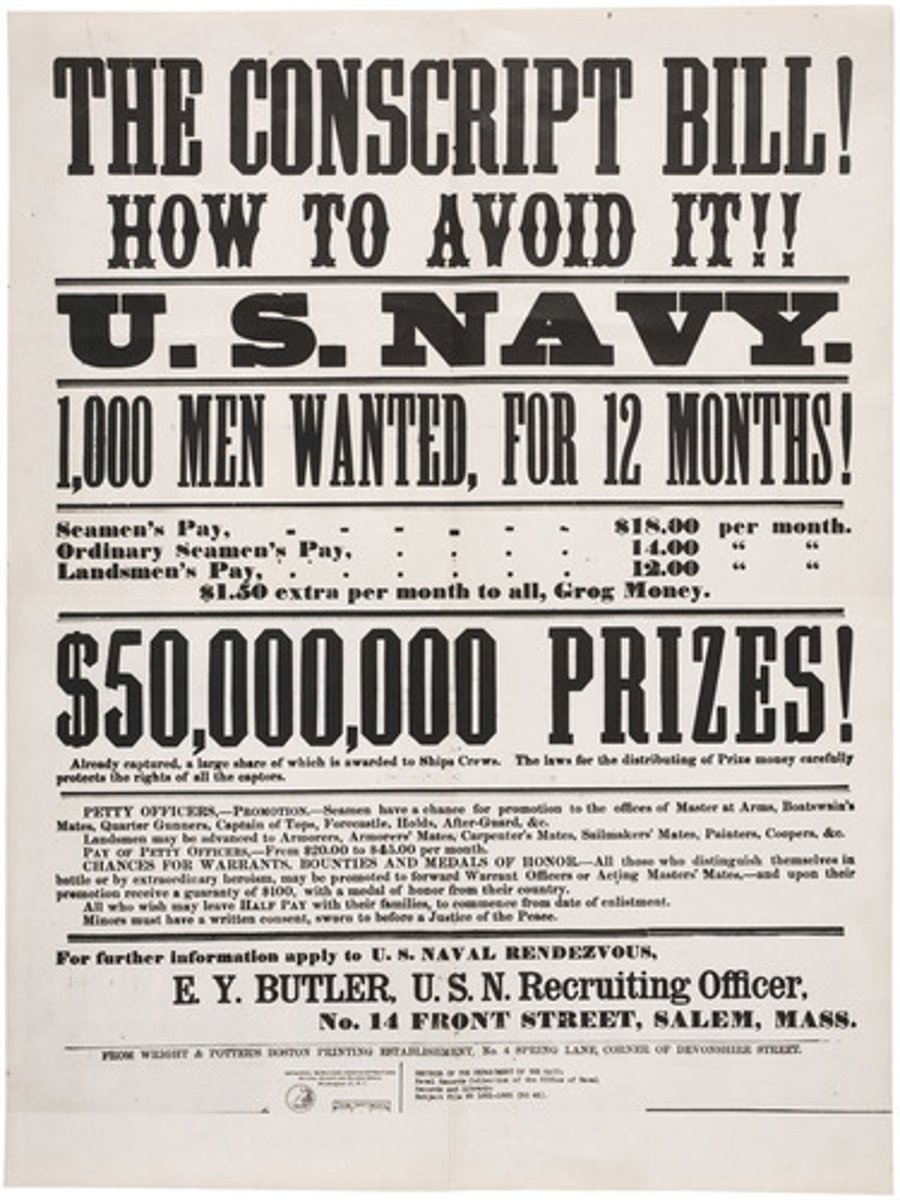
Contrabands
African Americans who had been enslaved but fled to, or were captured by, the Union Army, which accepted the useful fiction that they were "property" of military value subject to confiscation.
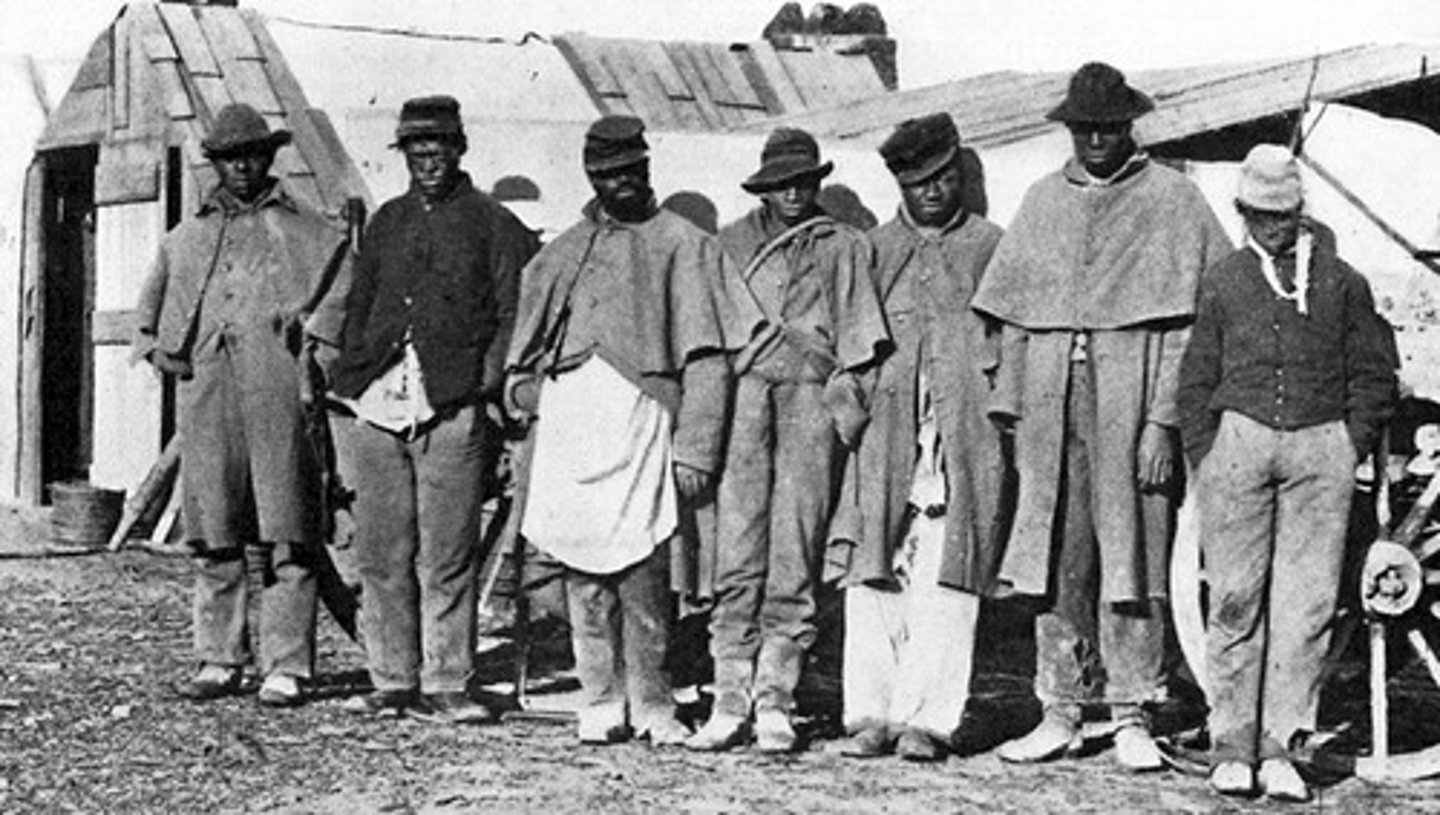
Radical Republicans
Group within the Republican Party in the 1850s and 1860s that advocated strong resistance to the expansion of slavery, opposition to compromise with the South in the secession crisis of 1860-1861, emancipation and arming of black soldiers during the Civil War, and equal civil and political rights for blacks during Reconstruction.
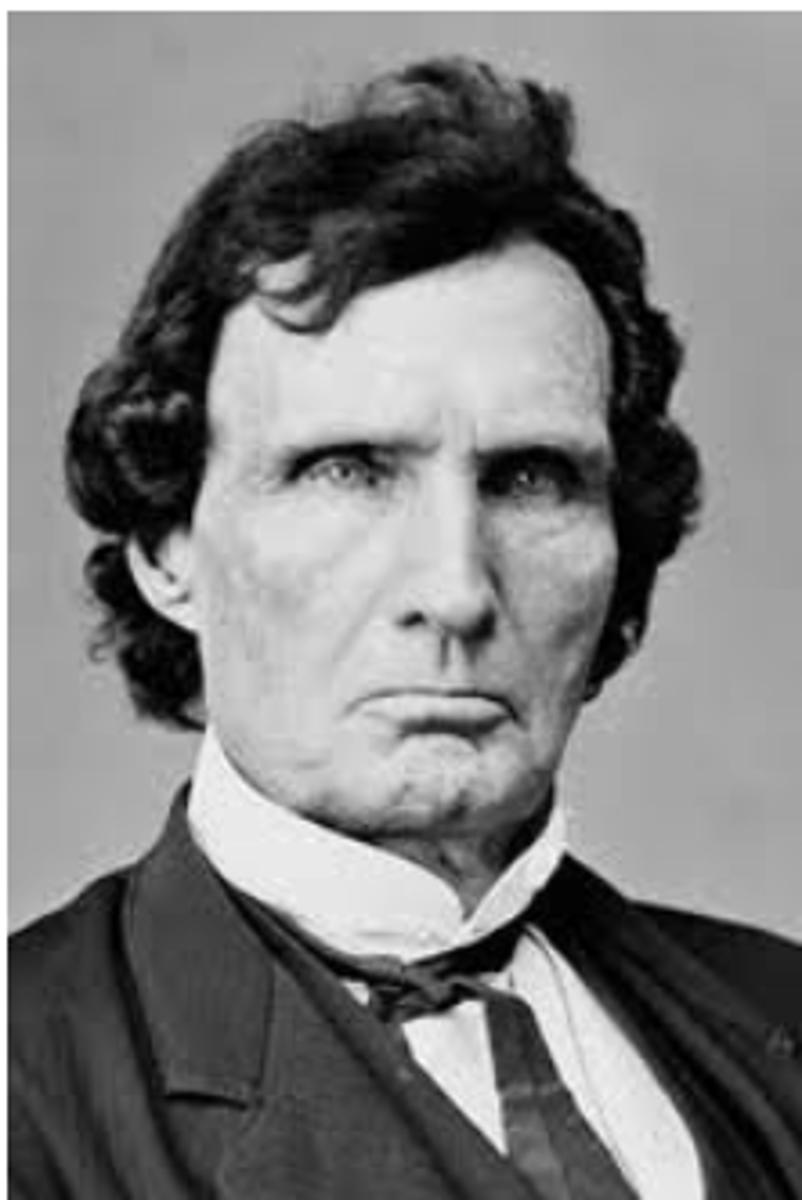
Emancipation Proclamation
Because its legality derived from the president's authority as military commander-in-chief to combat the South's rebellion, when President Lincoln issued this order on January 1st, 1863, it exempted areas firmly under Union Control (where the war, in effect, had already ended), nor did it apply to the loyal border slave states that had never seceded nor to areas of the Confederacy occupied by union soldiers. However, it did declare that the vast majority of slaves "henceforth shall be free," which in effect transformed the Civil War from a war to save the Union into a war to end slavery.
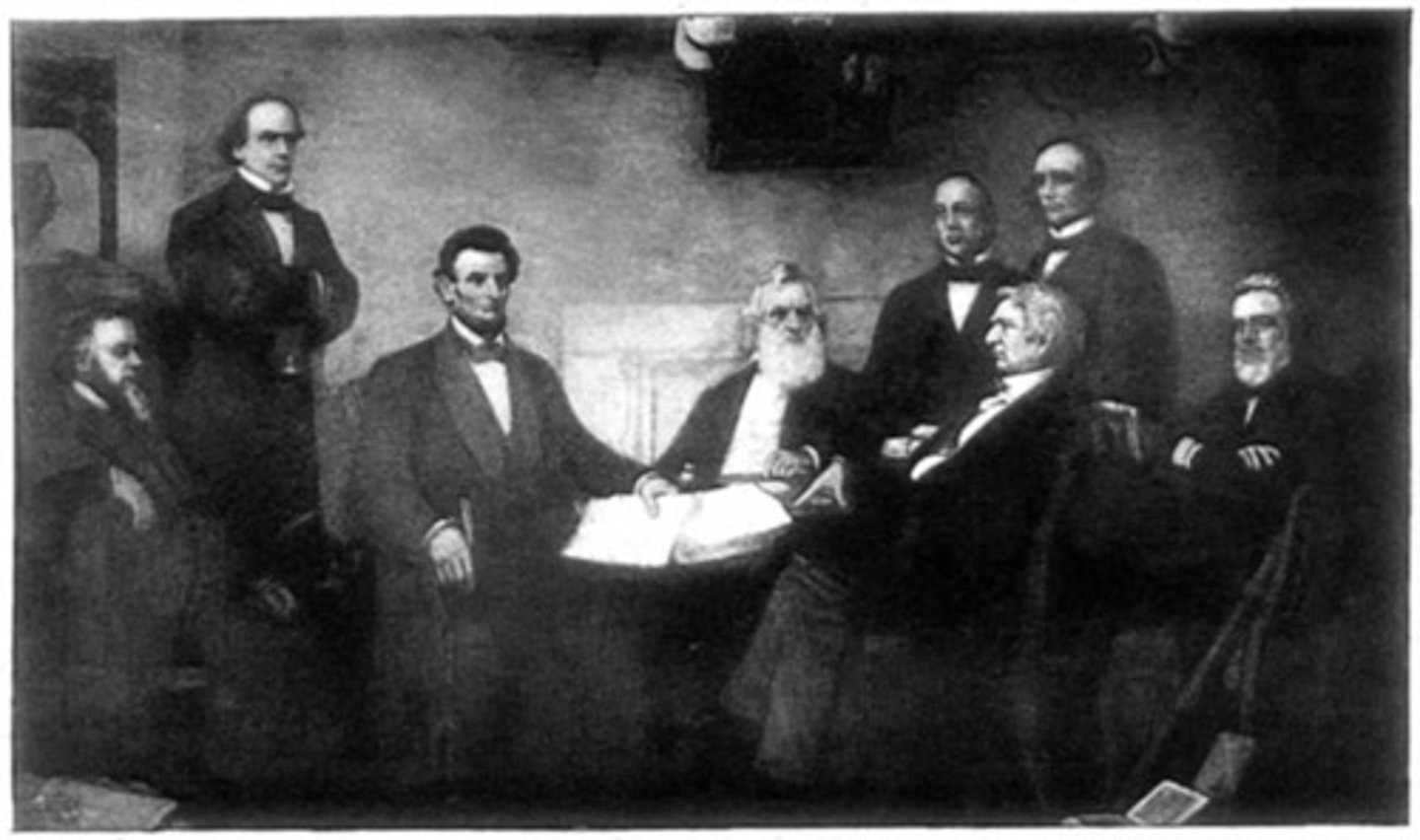
Black soldiers and sailors
After the Emancipation Proclamation, the Union army became an agent of emancipation.
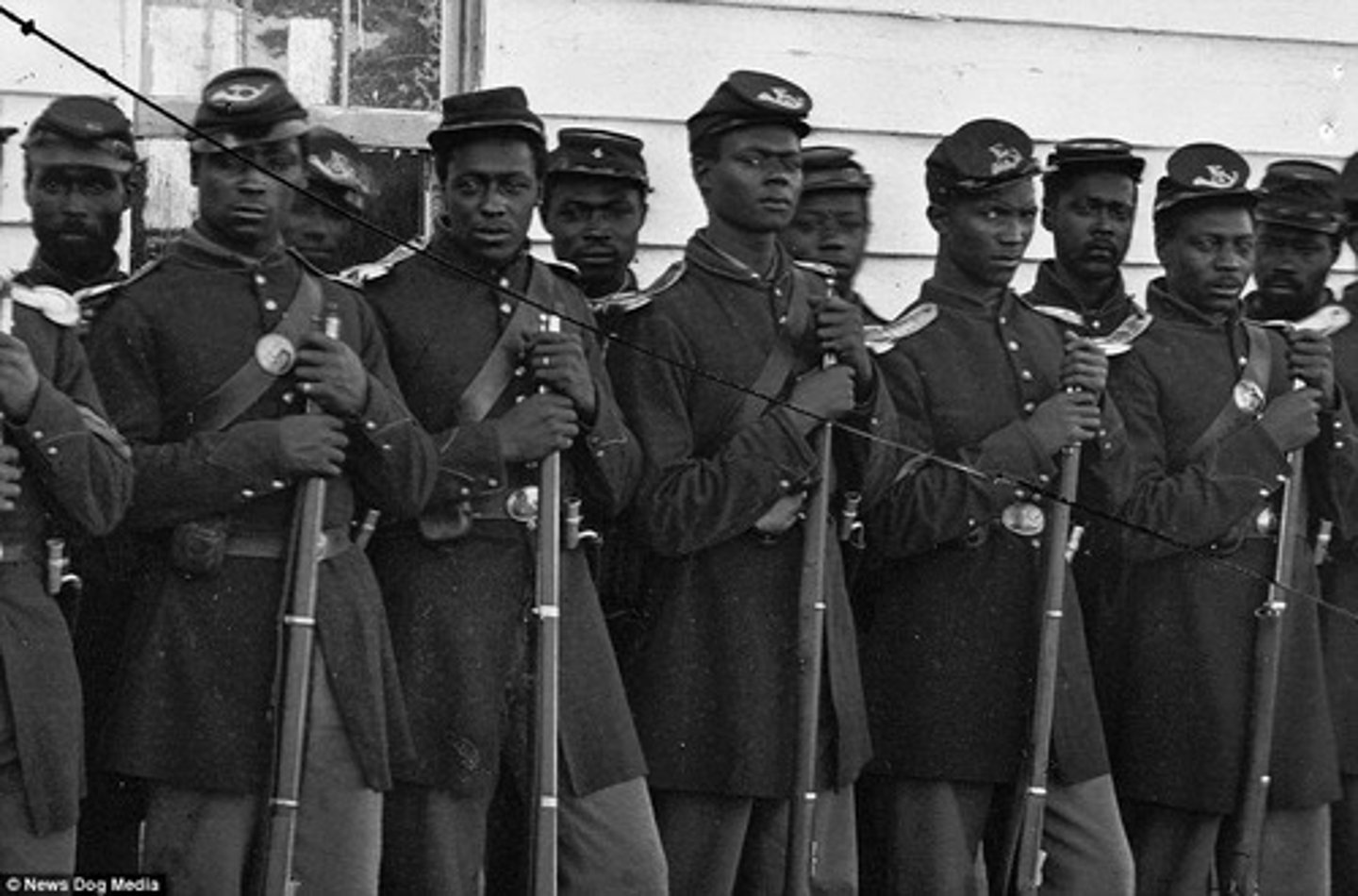
New York Draft Riots
In July, 1863, the introduction of the draft provoked four days of rioting in New York City. The mob, composed largely of Irish immigrants, assaulted symbols of the new order created by the war--draft offices, the mansions of wealthy Republicans, industrial establishments, and the city's black population, many of whom fled to New Jersey or took refuge in Central Park. Only the arrival of Union troops quelled the uprising, but not before more than 100 persons had died.
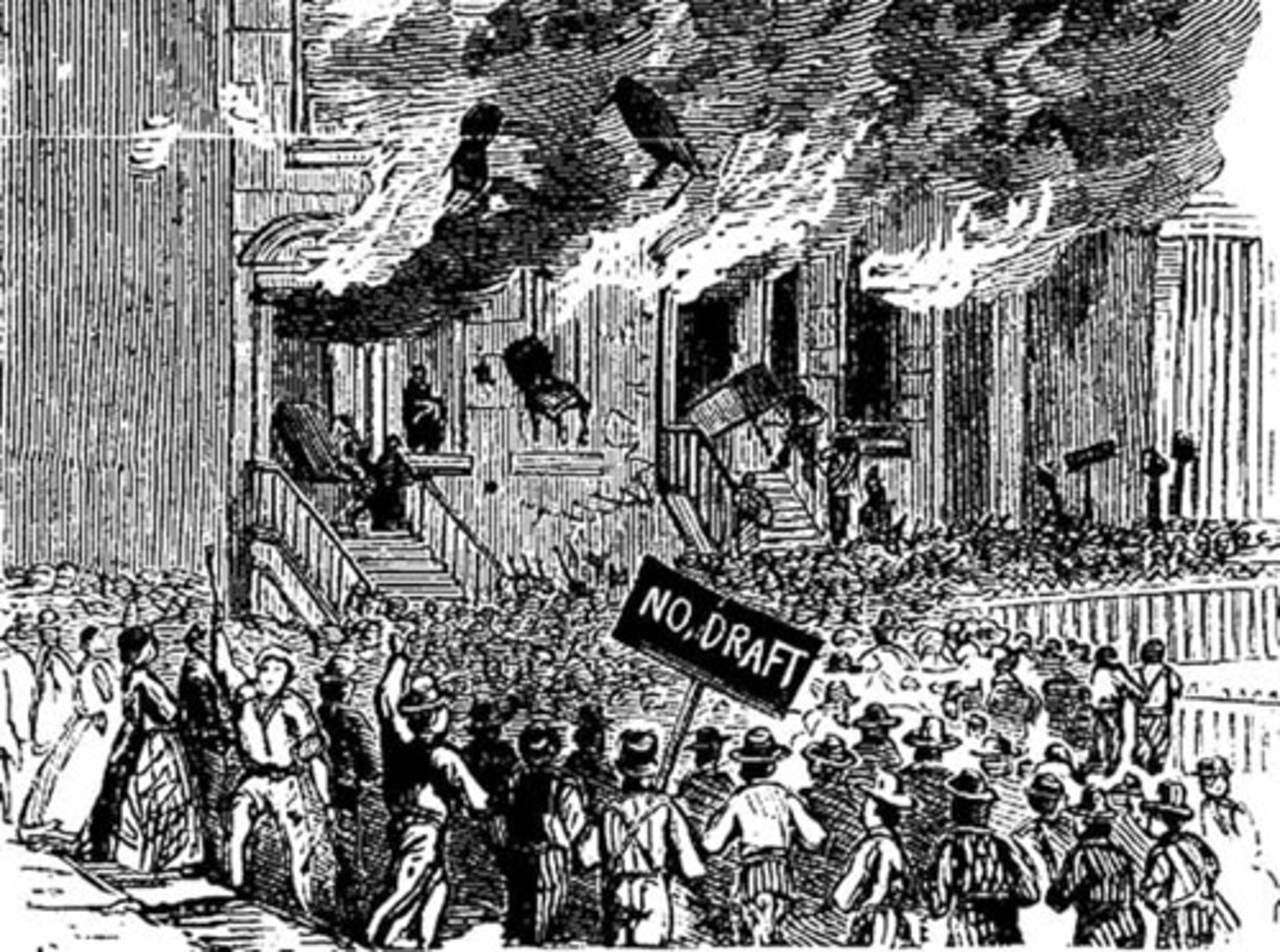
Second American Revolution
The transformation of American government and society brought about by the Civil War. Major elements of the revolution include: the abolition of slavery, the consolidation of Lincoln's vision of the nation united by the ideals of political democracy and human liberty, the increasing power and activity of the federal government (punishing dissent, the Homestead Act, the Transcontinental Railroad, increased tariff, income tax, a system of nationally chartered banks.)
Ex Parte Milligan (1866)
Lincoln had restricted civil liberties during the Civil War by suspending the writ of habeas corpus in order to arrest and detain outspoken opponents of the war in the North. However, after the war, in 1866, in this case, the Supreme Court declared it unconstitutional to bring accused persons before military tribunals where civil courts were operating. The Constitution, declared Justice David Davis, is not suspended in wartime--it remains "a law for rulers and people, equally in time of war and peace."
Homestead Act, 1862
This Civil War era law authorized Congress to grant 160 acres of public land to a western settler, who had to live on the land for five years to establish title. It reflected the Republican Party's Free-Labor ideology ("free soil for free labor'). By the 1930s, more than 400,000 families had acquired farms under its provisions. In addition, the Land Grant College Act assisted the states in establishing "agricultural and mechanic colleges" across the nation.
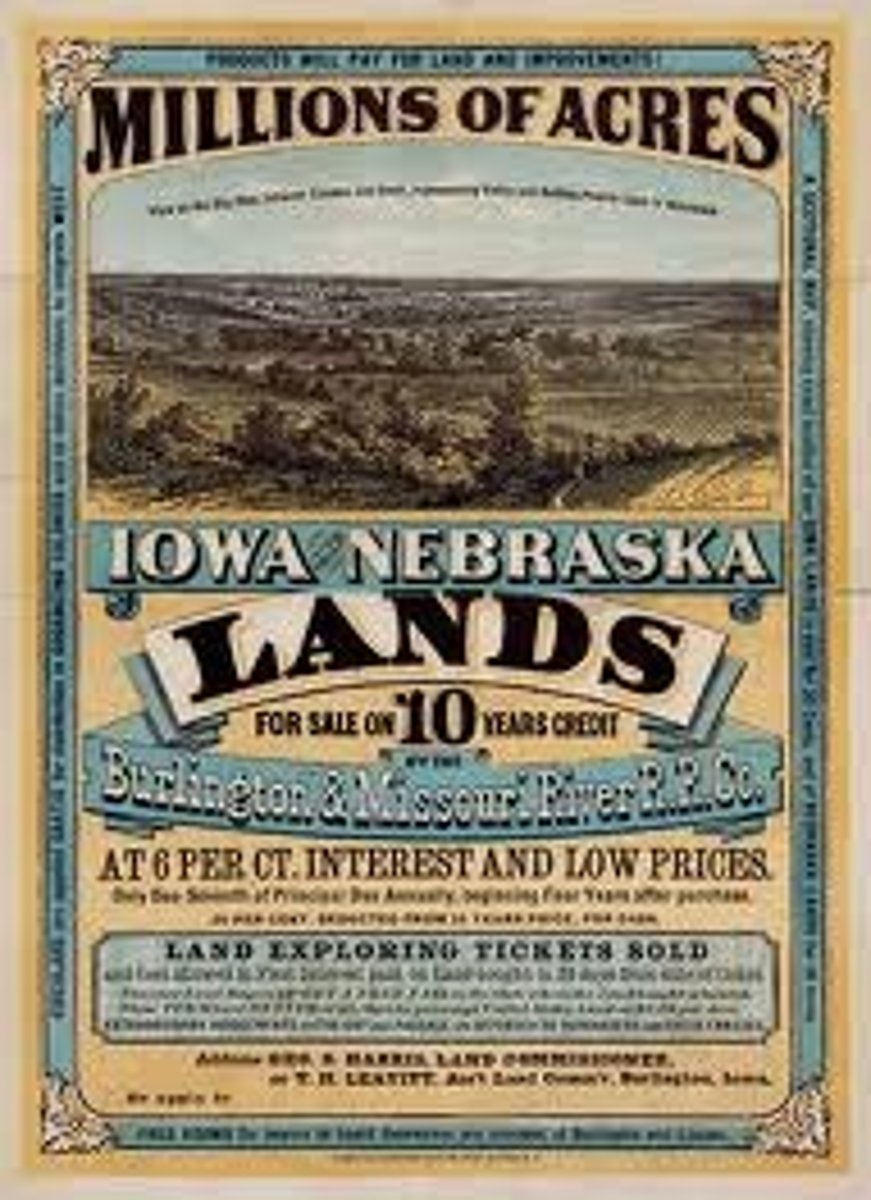
Transcontinental Railroad
Refers to the first railroad line across the continent from Omaha, Nebraska, to Sacramento, California, established in 1869 with the linkage of the Union Pacific and Central Pacific railroads at Promontory, Utah
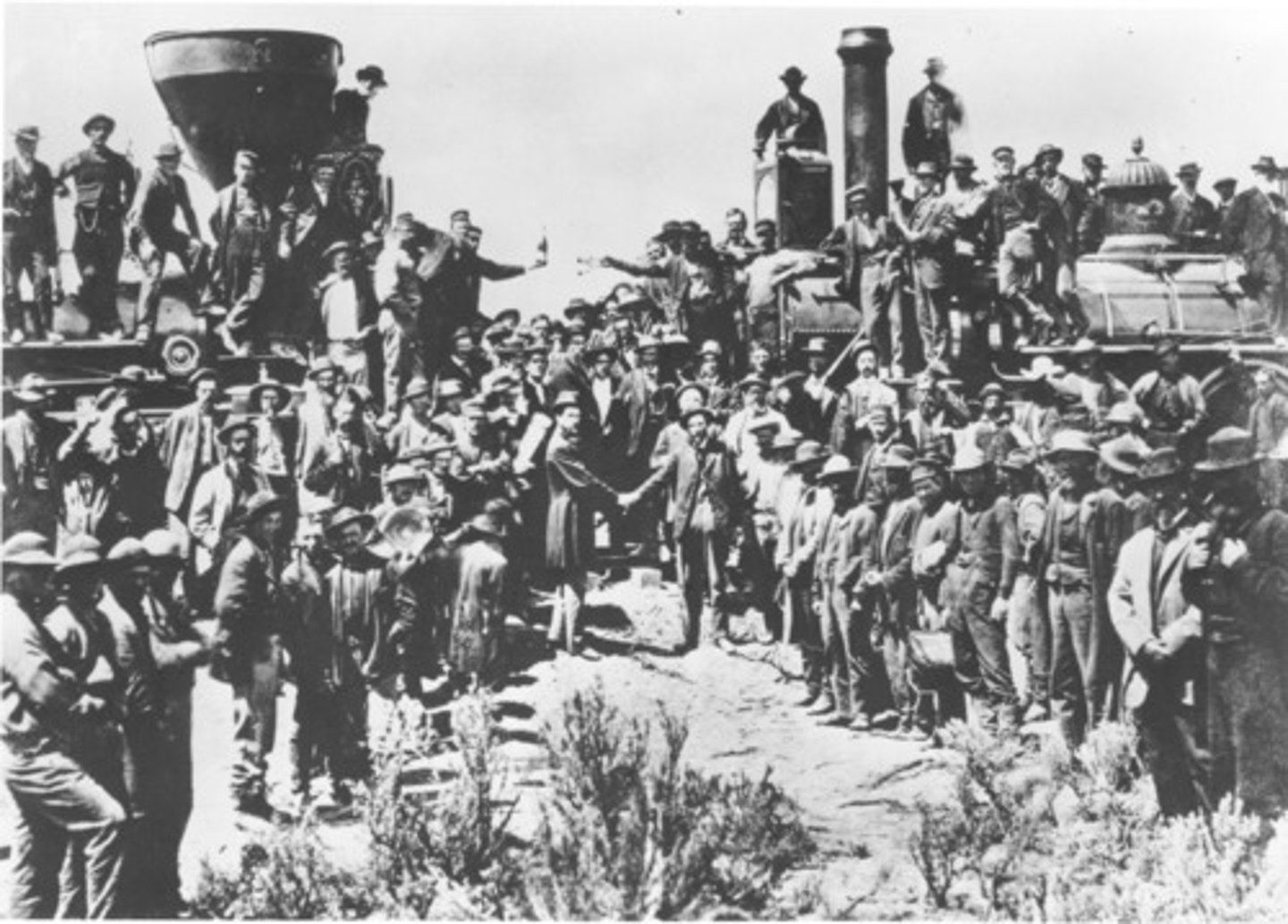
National Banking System
After the Civil War broke out, both sides were found unprepared as they lacked a national banking system. In the North, Congress established a system of nationally chartered banks, which were required to purchase government bonds and were given the right to issue bank notes as currency. A heavy tax drove money issued by state banks out of existence. Thus, the United States, whose money supply before the war was a chaotic mixture of paper notes issued by state and local banks, now had essentially two kinds of national paper currency--greenback printed directly by the federal government, and notes issued by the new national banks.
Lincoln's Ten Percent Plan
A plan enacted by President Abraham Lincoln in Union-controlled Louisiana in 1863 that offered an amnesty and full restoration of rights, including property except for slaves, to nearly all white southerners who took an oath affirming loyalty to the Union and support for emancipation; when 10 percent of the voters of 1860 had taken the oath, they could elect a new state government, which would be required to abolish slavery
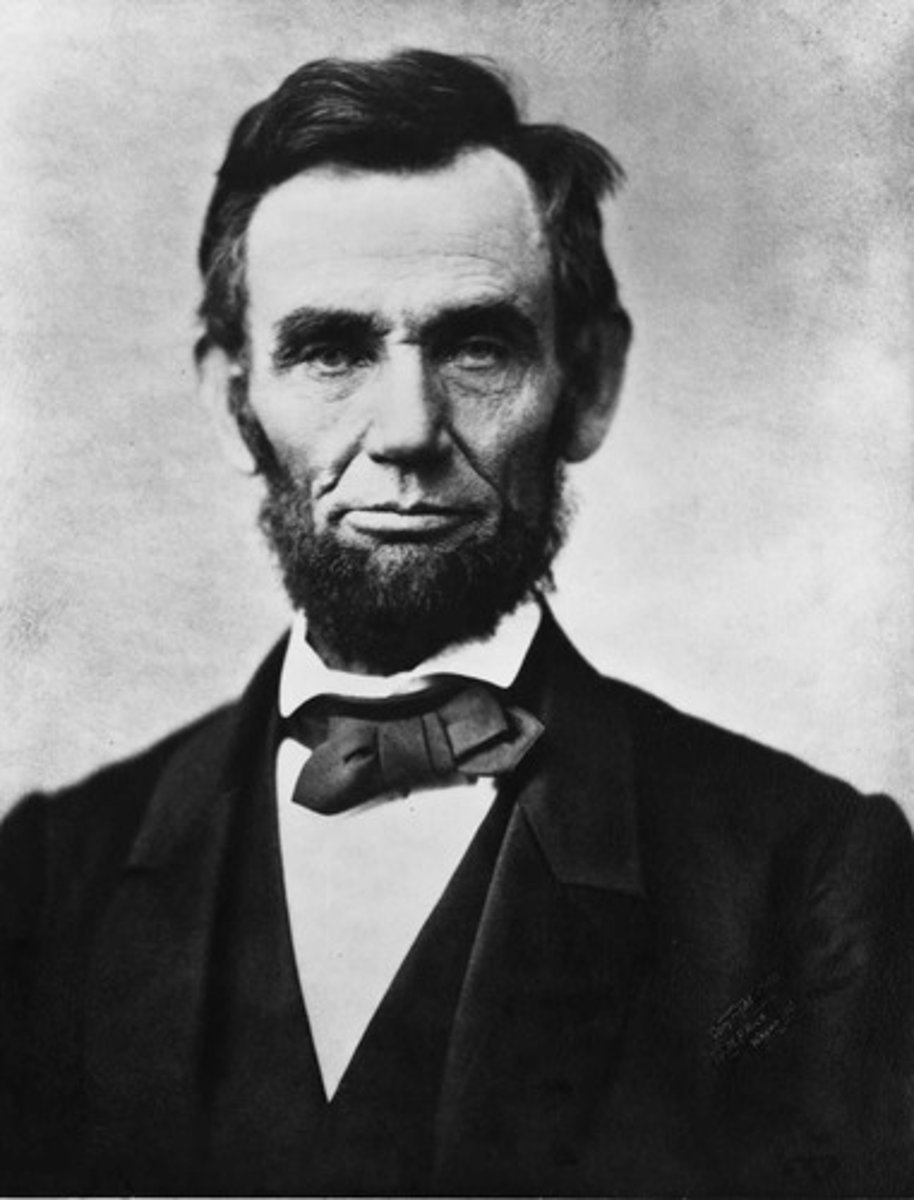
Wade-Davis Bill
Congressional bill proposed by Republicans in response to Southern Secession; Congress's authority to admit states into the Union
Required a majority of white male southerners (not 10%) to pledge support for the Union before Reconstruction could begin in any state
The new state constitutions would have to abolish slavery (ratify the 13th amendment that said slavery is not allowed) and disfranchise (take away the power to vote) Confederate civil and military leaders
Guaranteed blacks equality before the law, but did not guarantee black voting rights or land redistribution
Lincoln pocket-vetoed this bill, so it never became a law.
Thirteenth Amendment
Declared that "Neither slavery nor involuntary servitude, except as a punishment for crime whereof the party shall have been duly convicted, shall exist within the United States, or any place subject to their jurisdiction." Formally abolishing slavery in the United States, this Amendment was passed by the Congress on January 31, 1865, and ratified during the period of Presidential Reconstruction by the states on December 6, 1865.

Freedmen
Term that referred to free citizens who were formerly slaves before the Civil War.
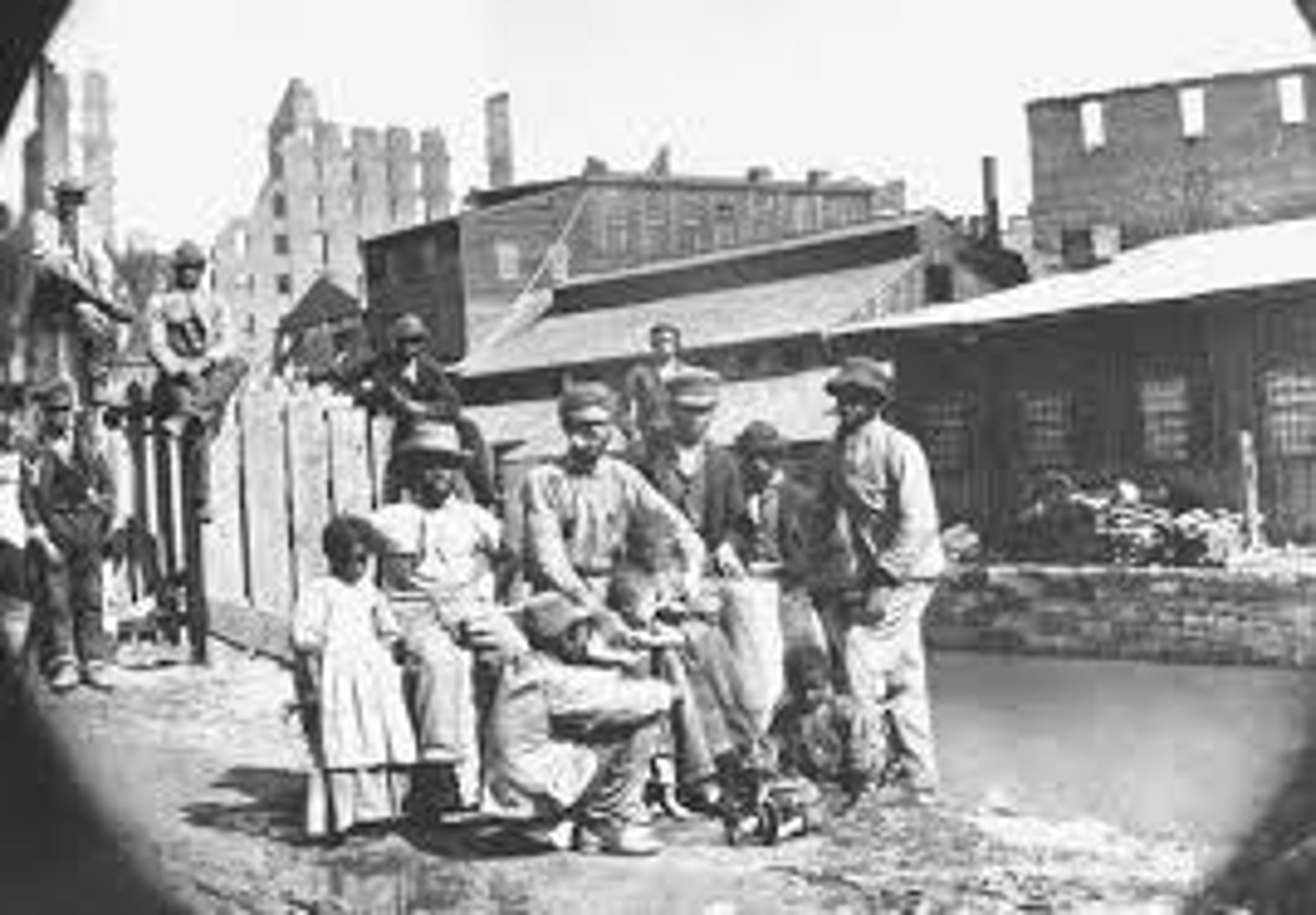
Freedmen's Bureau
An agency established by Congress in March 1865 to establish schools, provide aid to the poor and aged, settle disputes between whites and blacks, and secure for former slaves and white Unionists equal treatment before the courts.
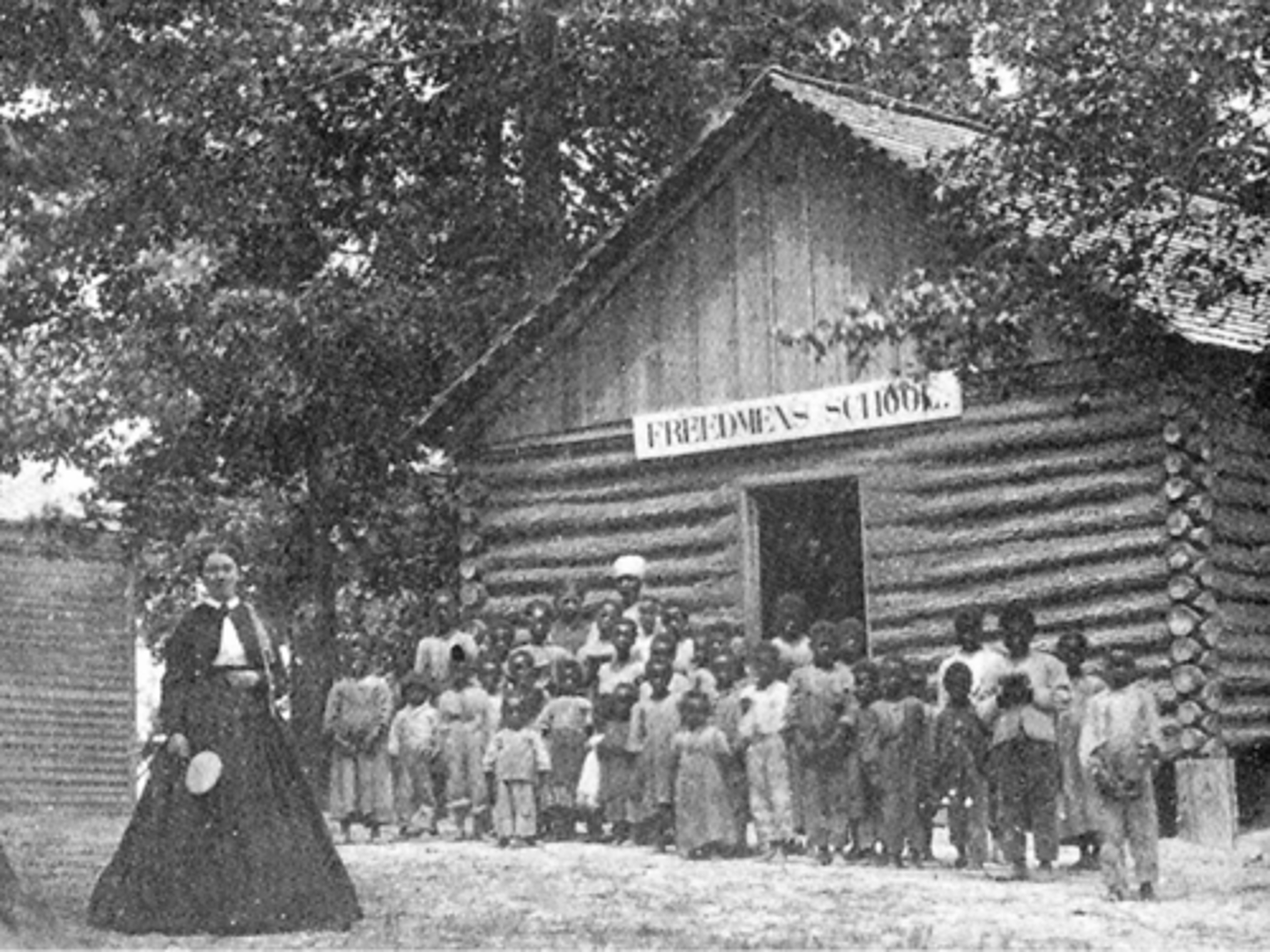
Black Codes
These were laws passed by southern states during Presidential Reconstruction in order to restrict the rights of former slaves. To nullify the codes, Congress passed the Civil Rights Act of 1866 and the Fourteenth Amendment.
Sharecropping
Type of farm tenancy that developed after the Civil War in which landless workers‚ often former slaves, farmed land in exchange for farm supplies and a share of the crop. It offered severely limited economic opportunity (This system was more or less the same as the crop-lien system.).
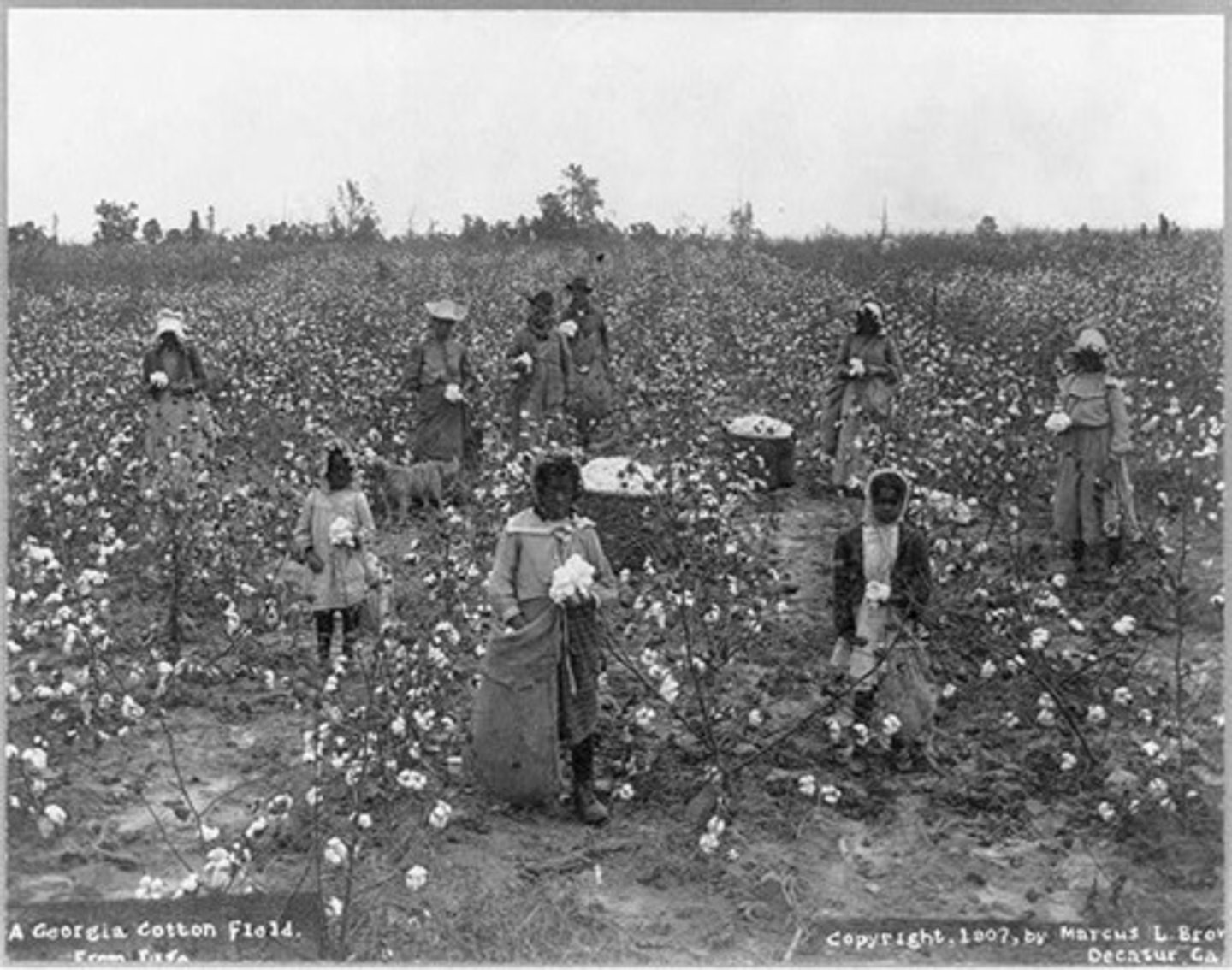
Presidential Reconstruction
This was the first phase of Reconstruction overseen first by Lincoln and then by Johnson, resting on the premise that the South had not actually succeeded, but rather they had launched an insurrection and thus the President had the authority to execute the law in this situation. This first phase of Reconstruction was mainly aimed at quelling the insurrection quickly with little disruption.
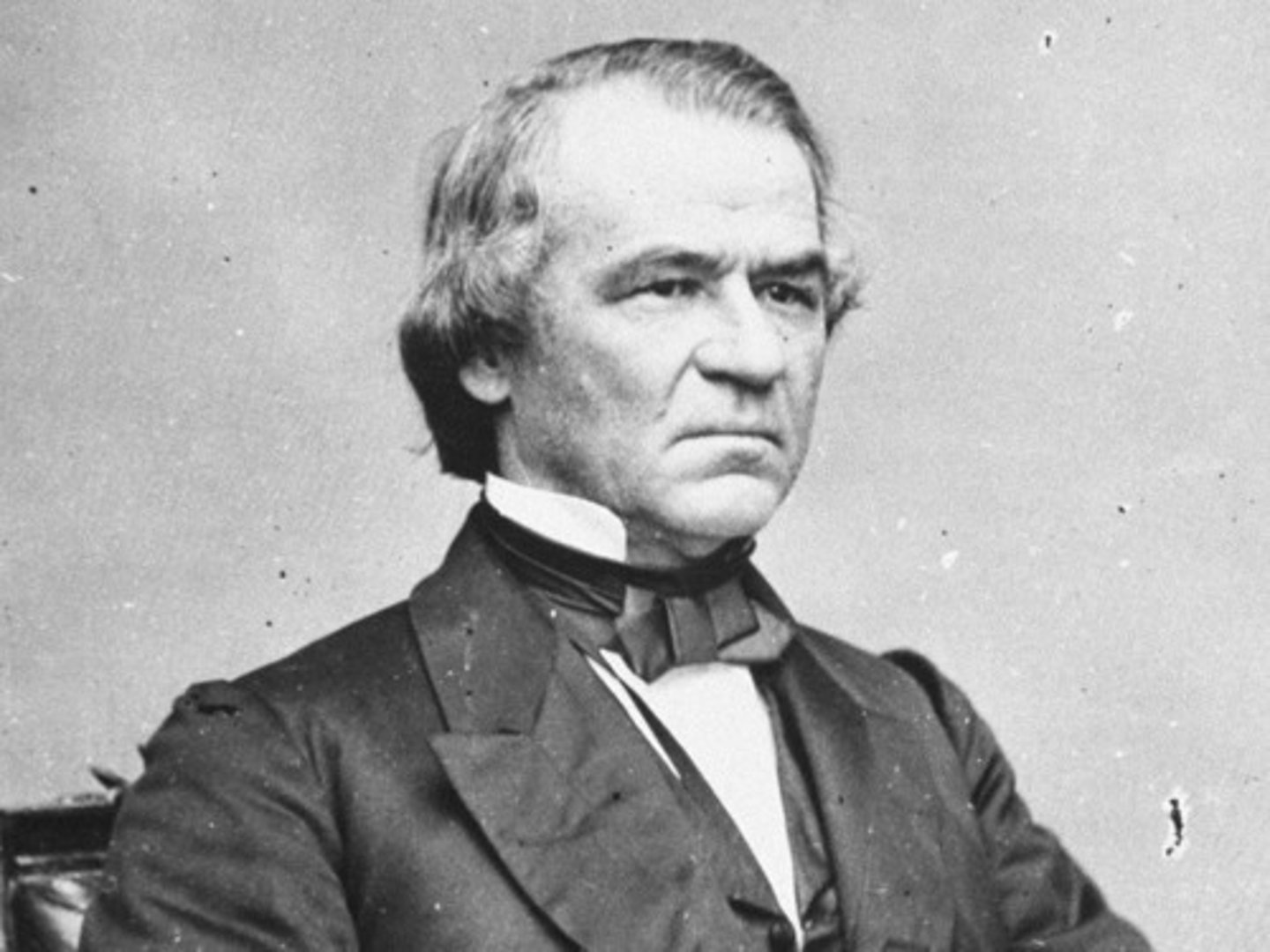
Congressional Reconstruction
The second phase of Reconstruction, which lasted roughly from the impeachment of Andrew Johnson until the Redeemers overthrew reconstruction efforts in the South. This phase of reconstruction was lead by the Radical Republicans in Congress and was much more interested in protecting the rights and equality of the freedmen than Presidential Reconstruction.
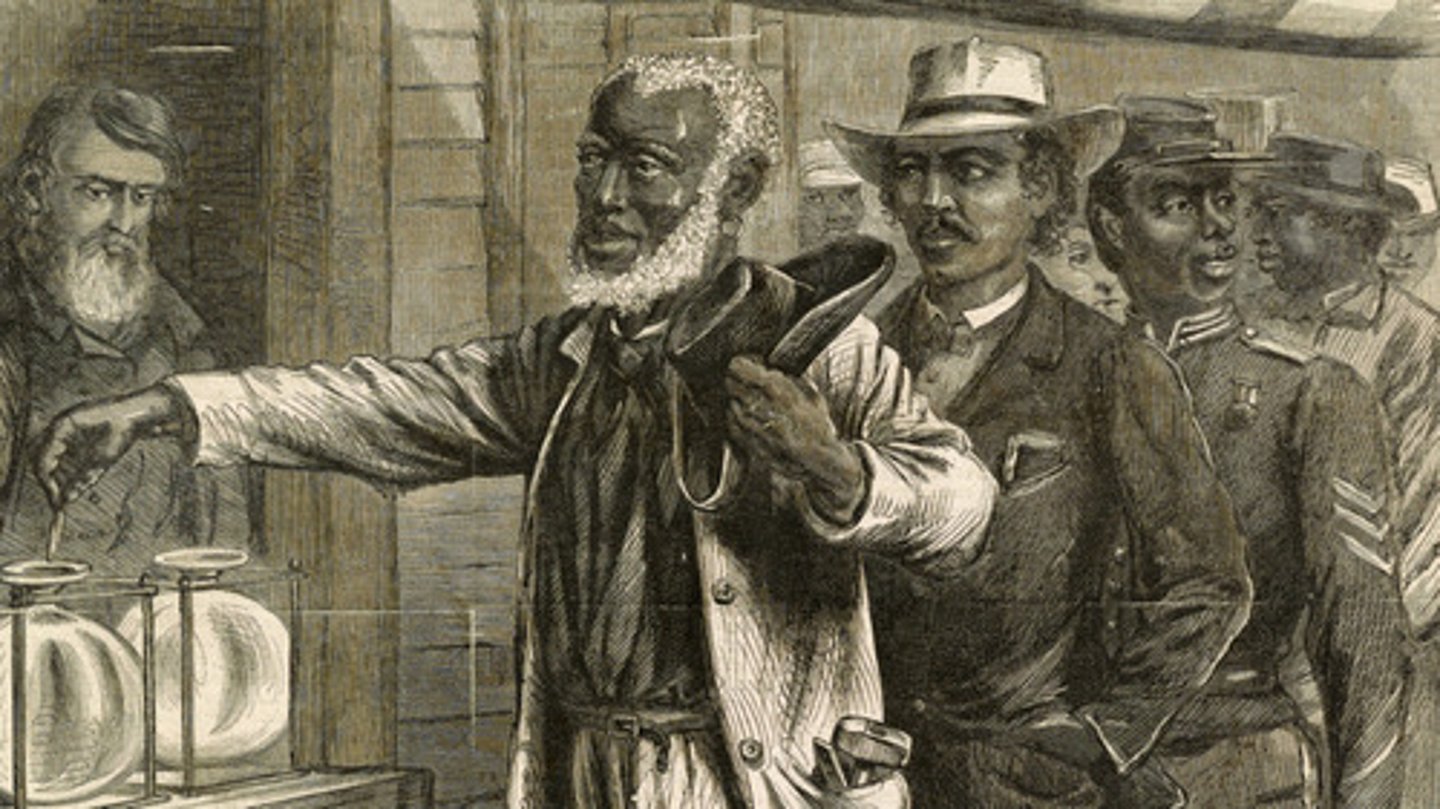
Fourteenth Amendment
Guaranteed rights of citizenship to former slaves, in words similar to those of the Civil Rights Act of 1866. More specifically, it established the first Constitutional definition of citizenship ("All persons born or naturalized in the United States...are citizens of the United States"), outlawed the black codes ("No State shall make or enforce any law which shall abridge the privileges or immunities of citizen of the United States") and guaranteed equal treatment for all freedmen in the South ("Nor shall any State deprive any person of life, liberty, or property without due process of law, nor deny to any person within its jurisdiction the equal protection of the laws."
Fifteenth Amendment
Prohibited states from denying citizens the right to vote because of race.
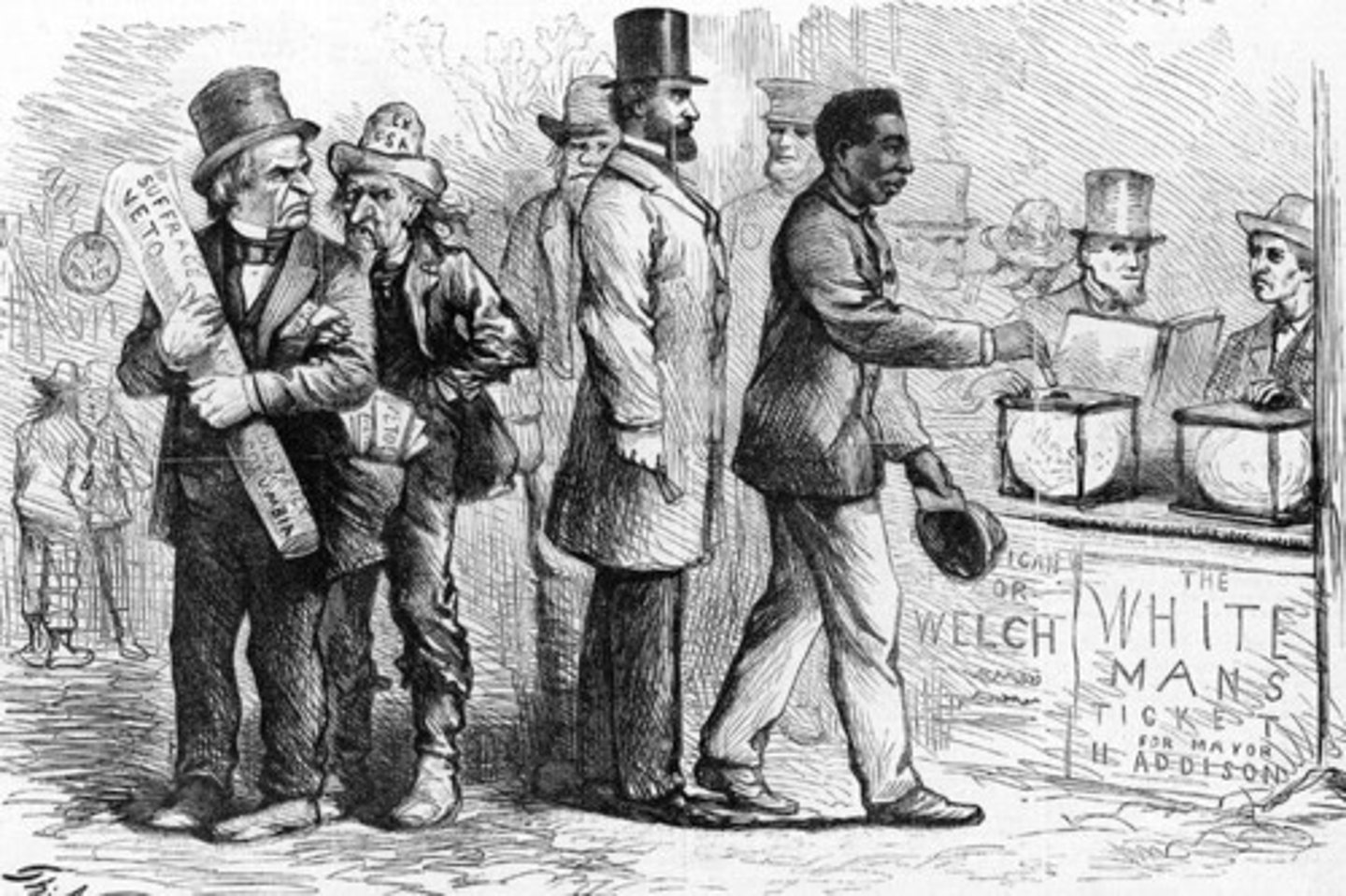
The Reconstruction Acts of 1867
Established temporary military governments in ten Confederate states—excepting Tennessee—and required that the states ratify the Fourteenth Amendment and permit freedmen to vote.
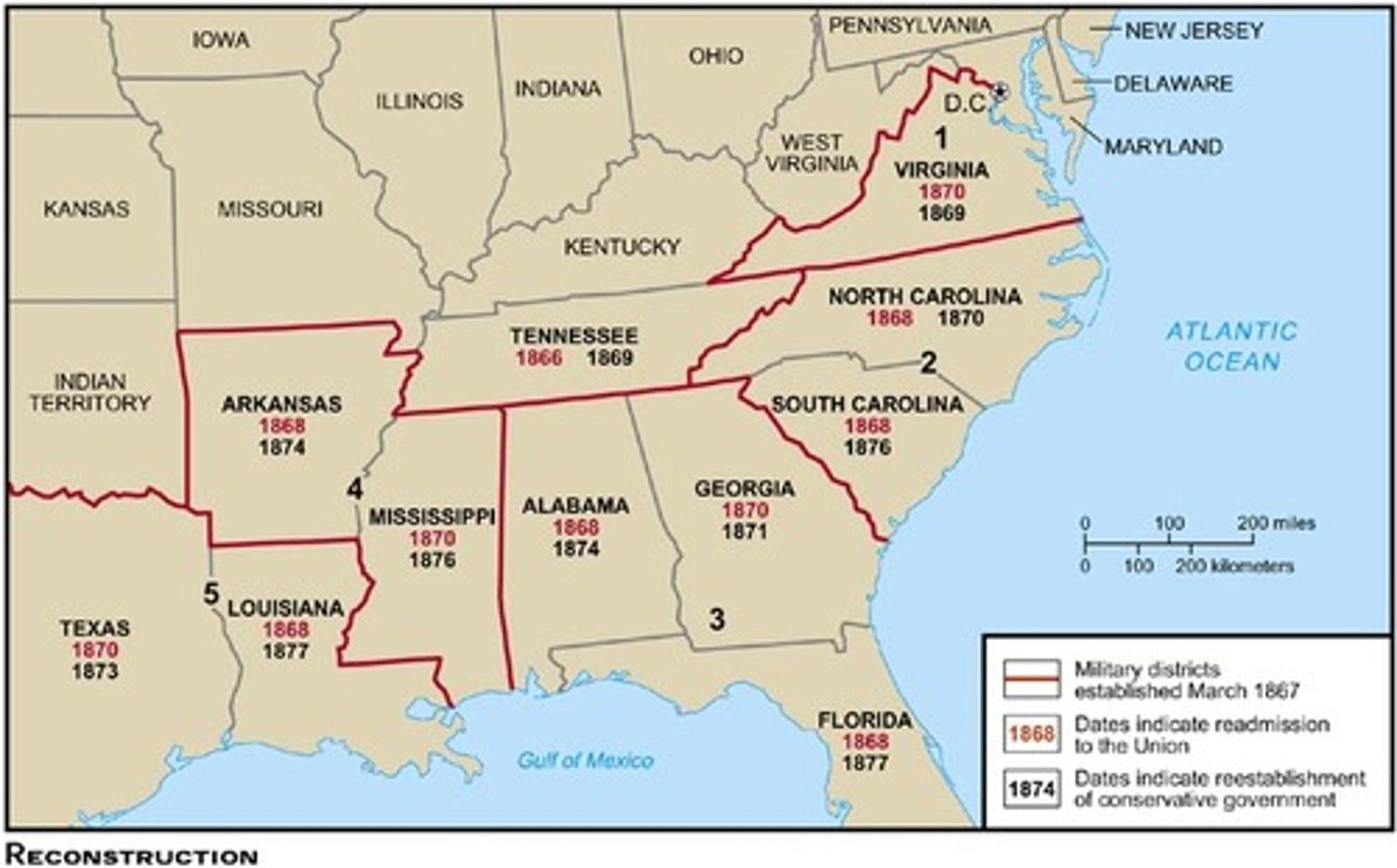
Carpetbaggers
Derisive term used by Southern whites for northern emigrants who participated in the Republican governments of the Reconstruction South.
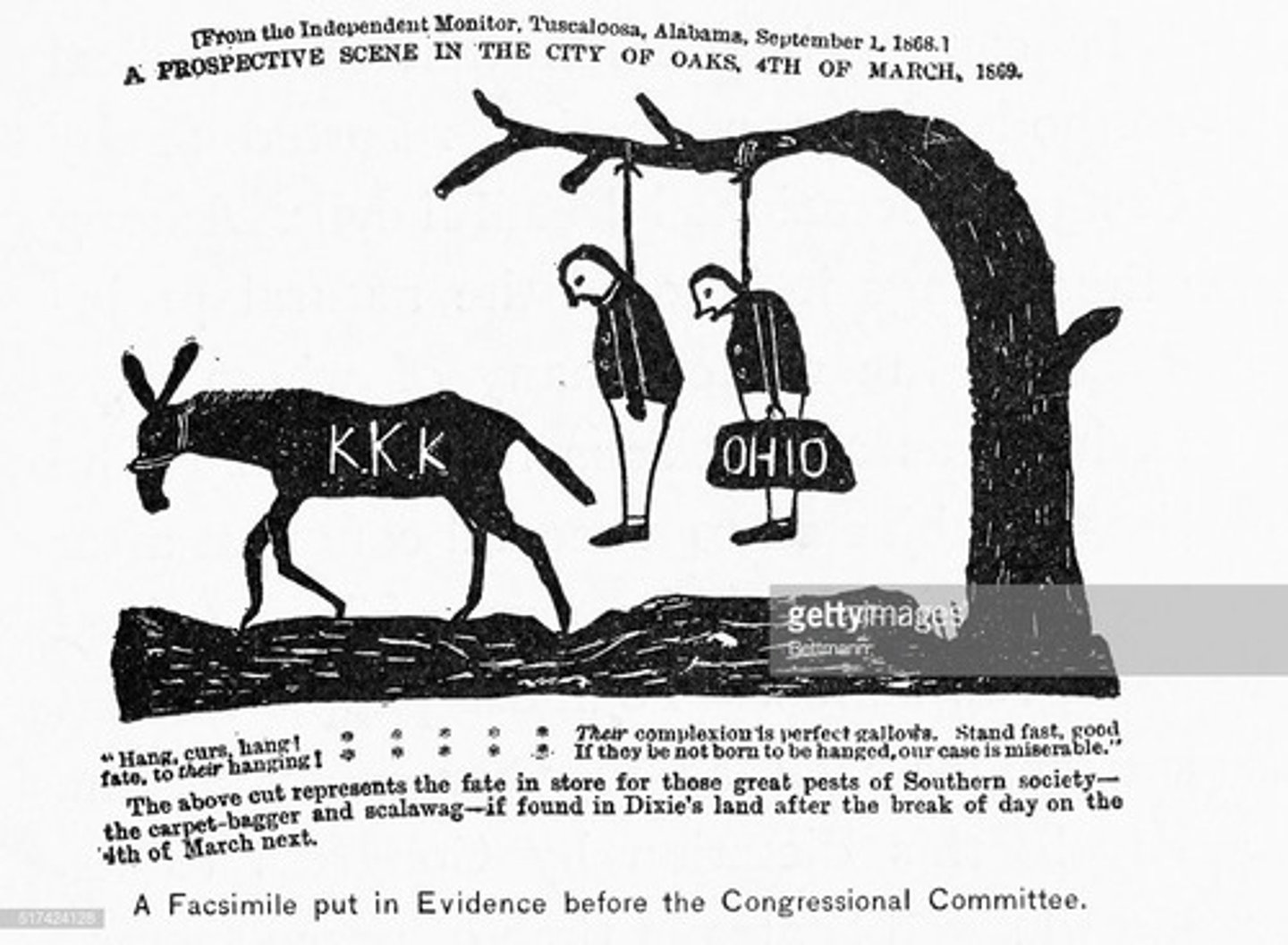
Scalawags
Derisive terms used by Southern whites for other southern white Republicans who supported Reconstruction governments.
Ku Klux Klan
Organized in Pulaski, Tennessee, in 1866 to terrorize former slaves who voted and held political offices during Reconstruction; a revived organization in the 1910s and 1920s stressed white, Anglo-Saxon, fundamentalist Protestant supremacy; they revived a third time to fight the civil rights movement of the 1950s and 1960s in the South.
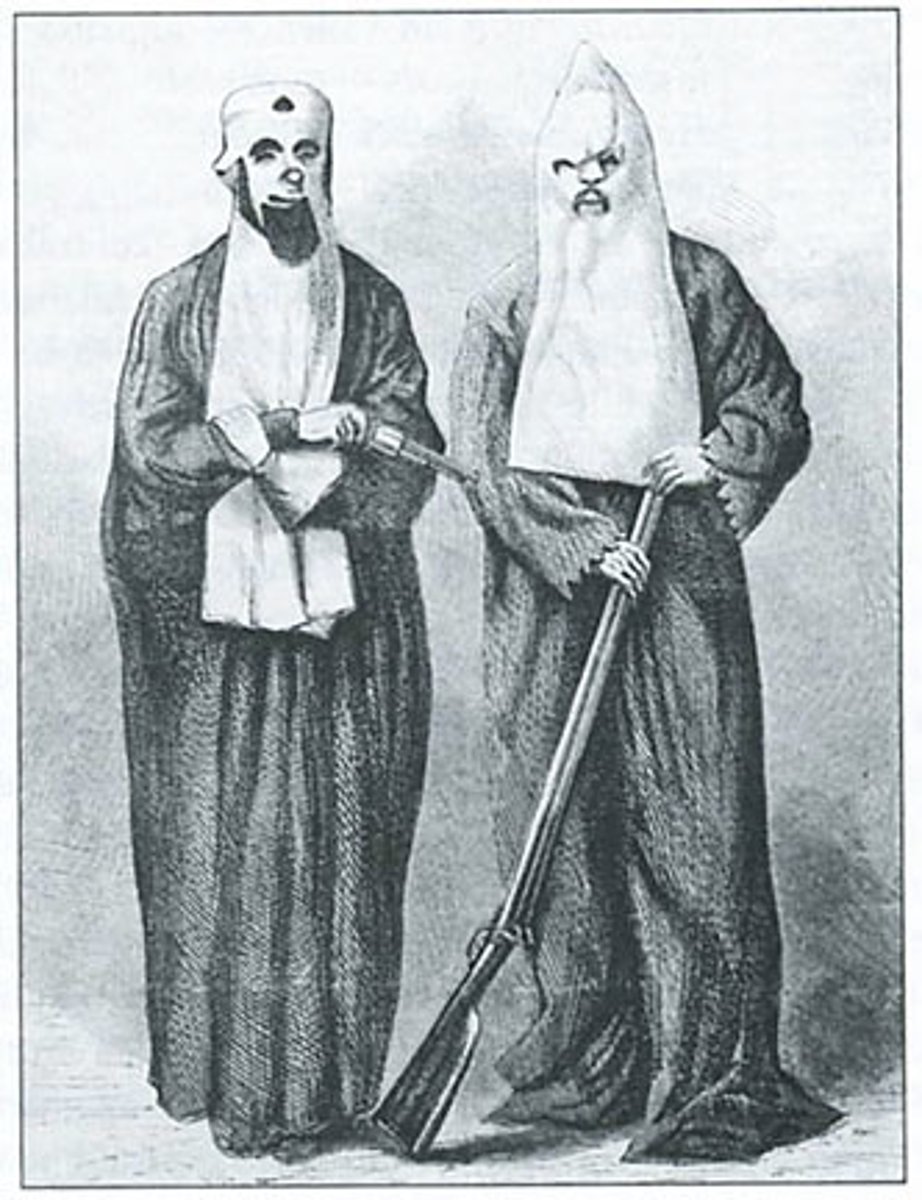
Enforcement Acts
Three acts passed between 1870-1871 outlawing terrorist societies and allowing the president to use the army against them.
Redeemers
Conservative white Democrats, many of them planters or businessmen, who reclaimed control of the South following the end of Reconstruction.
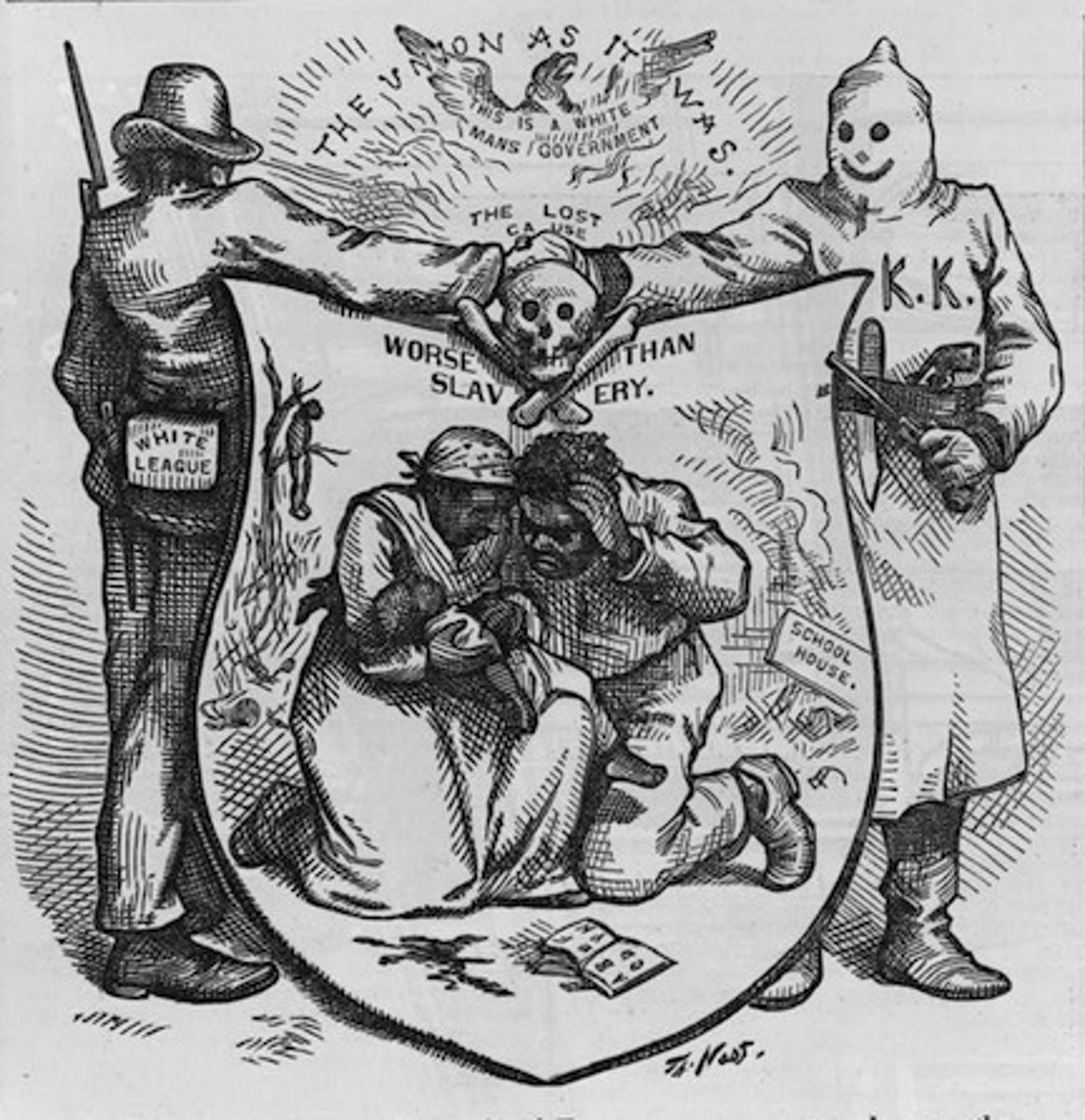
Election and Bargain of 1877
In the aftermath of a close presidential election, an Electoral Commission declared Rutherford B. Hayes president contingent a variety of compromises and agreements upon his taking office. The Democrats agreed to acknowledge that Republican candidate Rutherford B. Hayes had won the election in exchange for the Republican promise to abandon efforts at southern reconstruction.
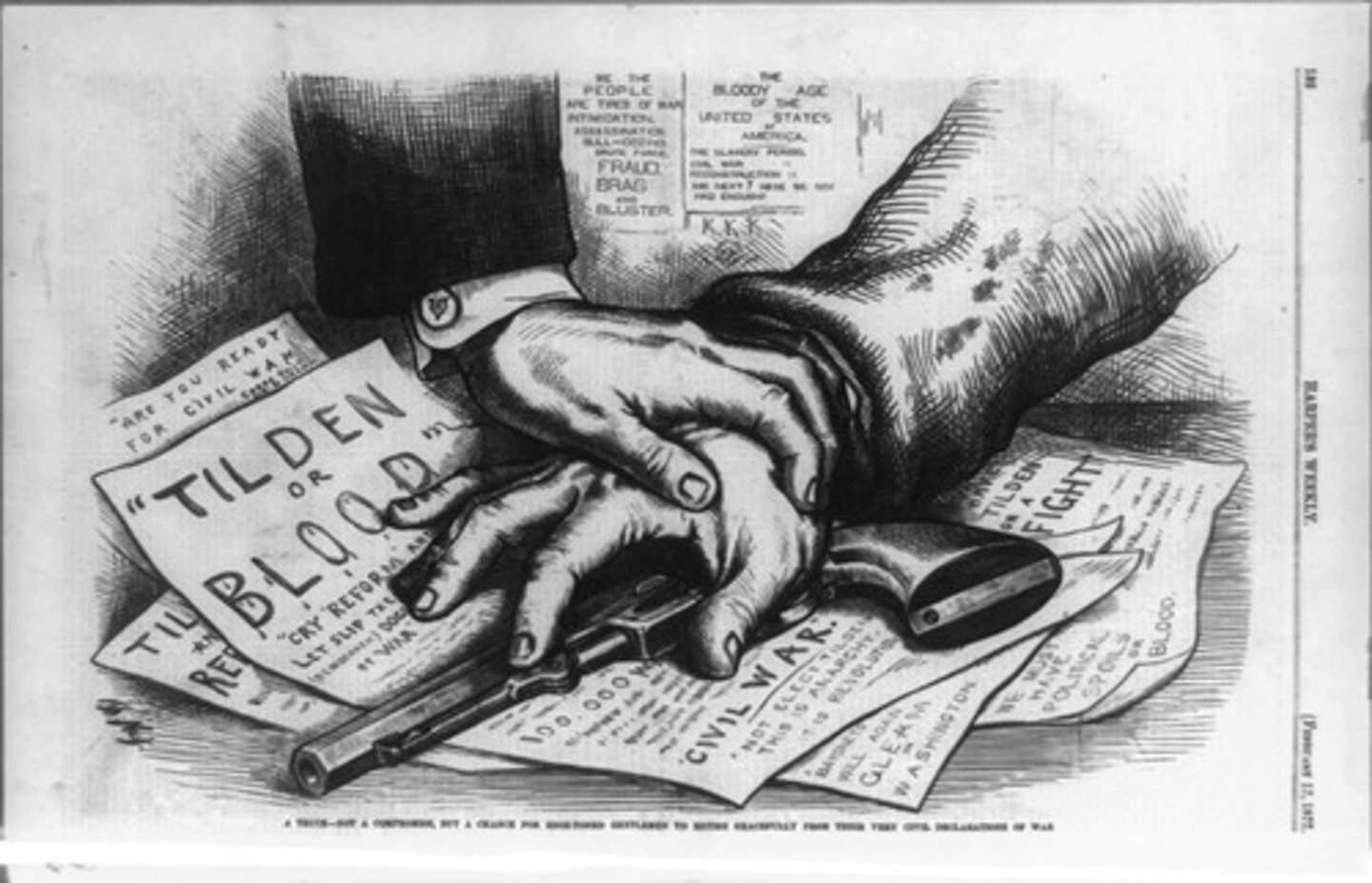
Birthright Citizenship
Established in the United States through the 14th Amendment, this right is also called "Jus soli," and it refers to the automatic right to citizenship for any person born within the territory of the nation. Now common in the western hemisphere, it is still rare in the rest of the world.
